Why you can trust Tom's Hardware
AMD Ryzen 7 5700X3D Gaming Performance — The TLDR
Be sure to head to our test setup page for the particulars of our test configurations. Below, you can see the geometric mean of our gaming tests at 1080p and 1440p, with each resolution split into its own separate chart. The first series of charts have the chips tested in overclocked memory/chip configurations, while the second series removes overclocked configurations to simply the results. Per our standard policy, we tested with an Nvidia GeForce RTX 4090 to reduce GPU-imposed bottlenecks as much as possible. Still, differences between test subjects will shrink with less powerful cards or higher resolutions.
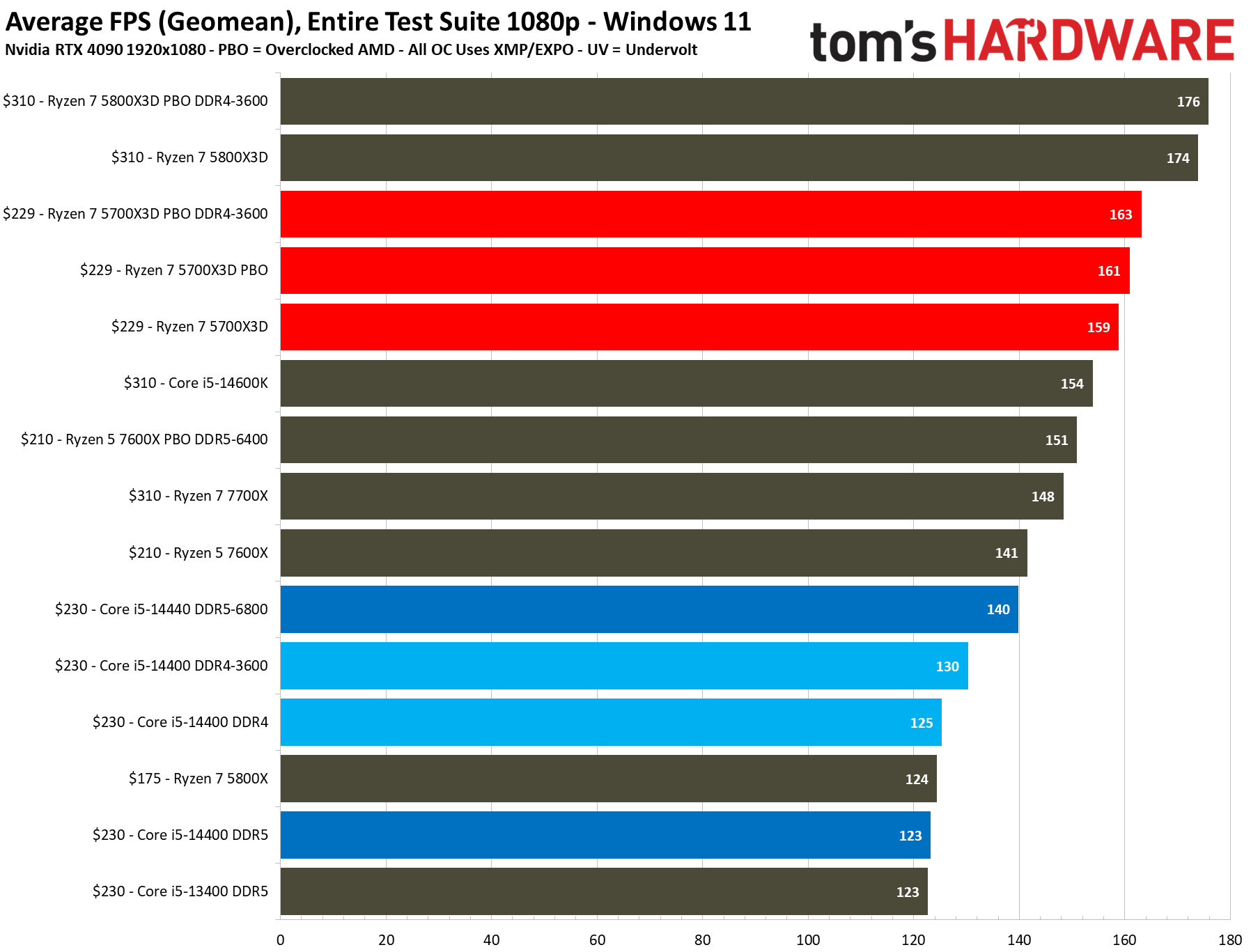
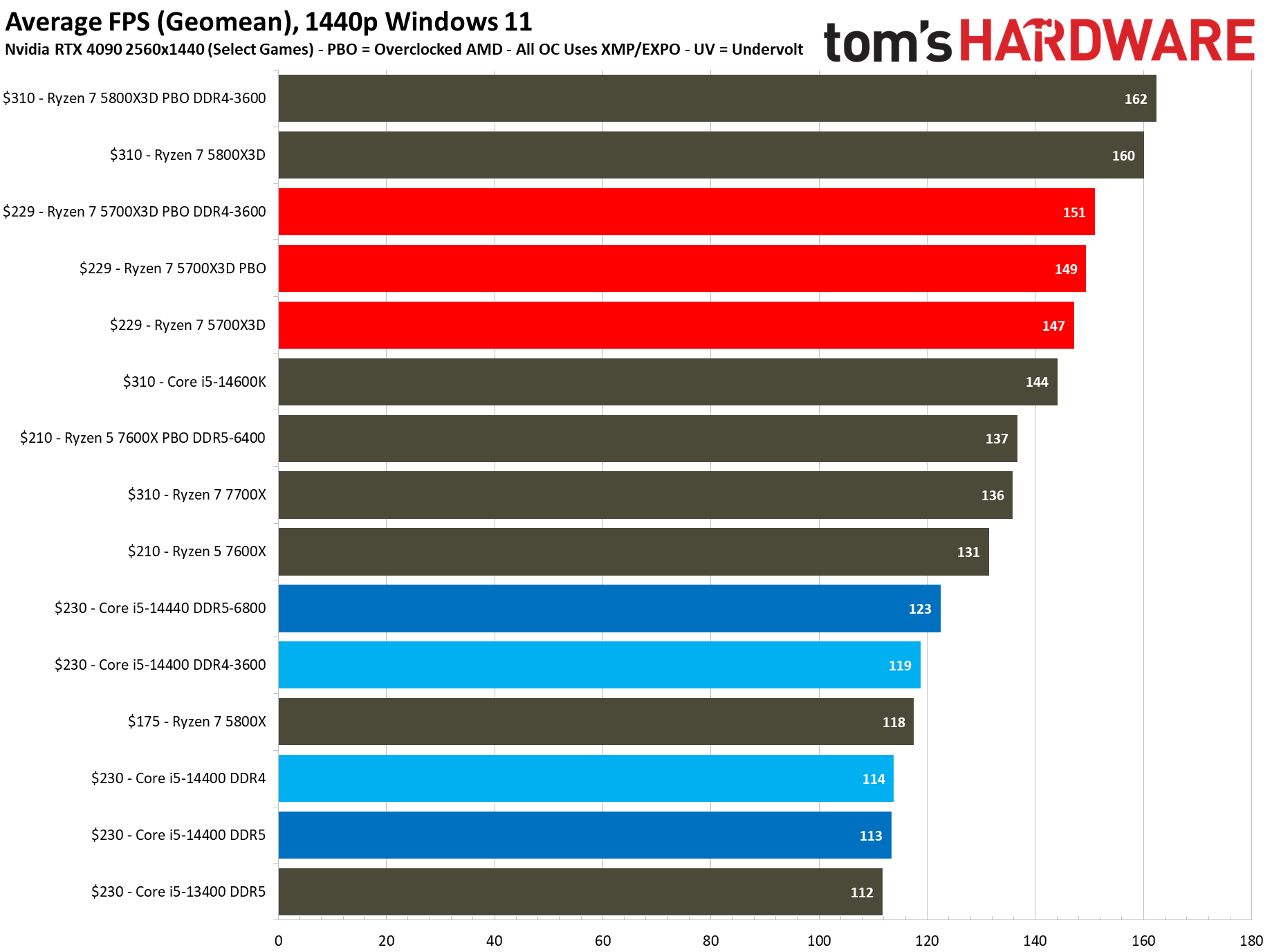
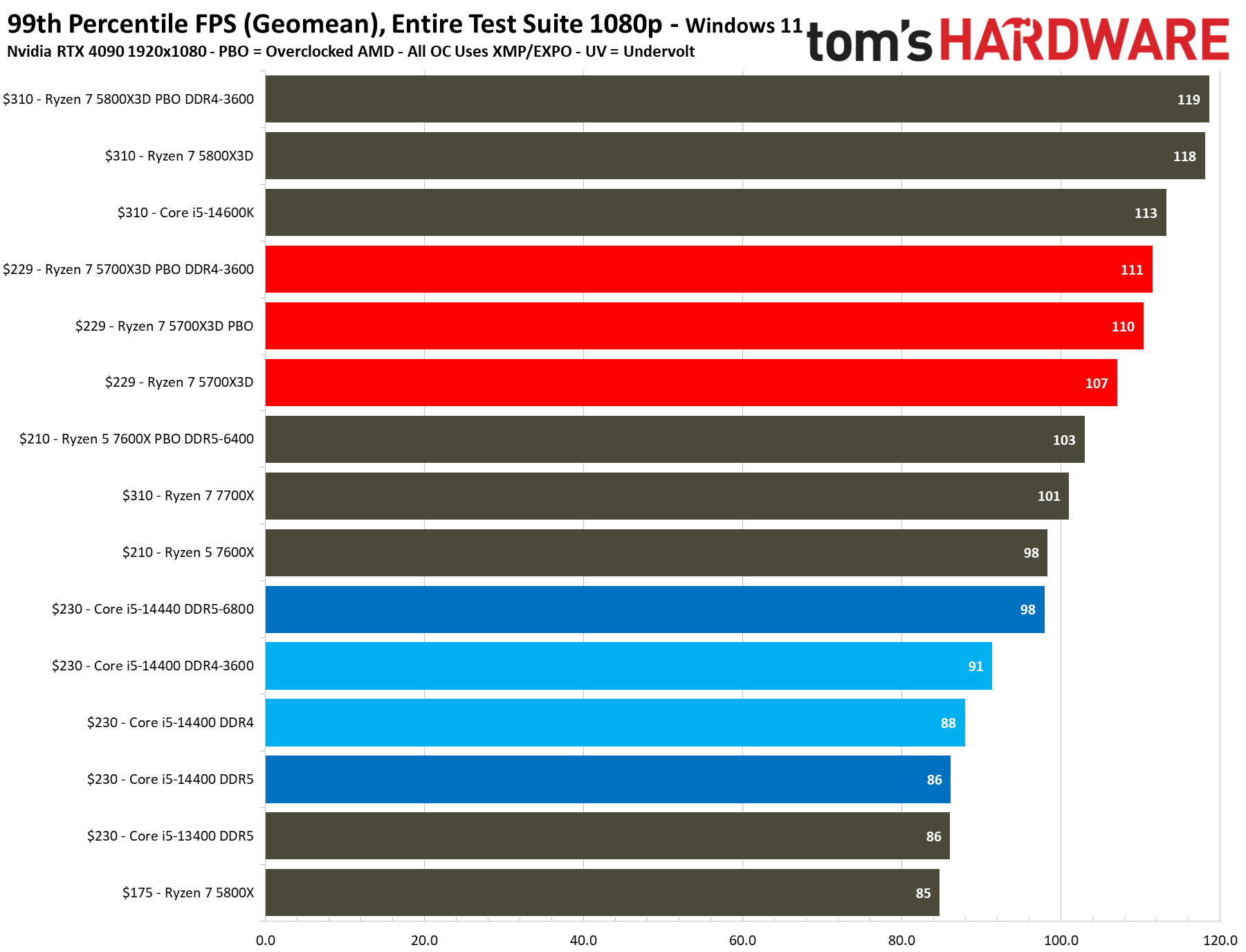
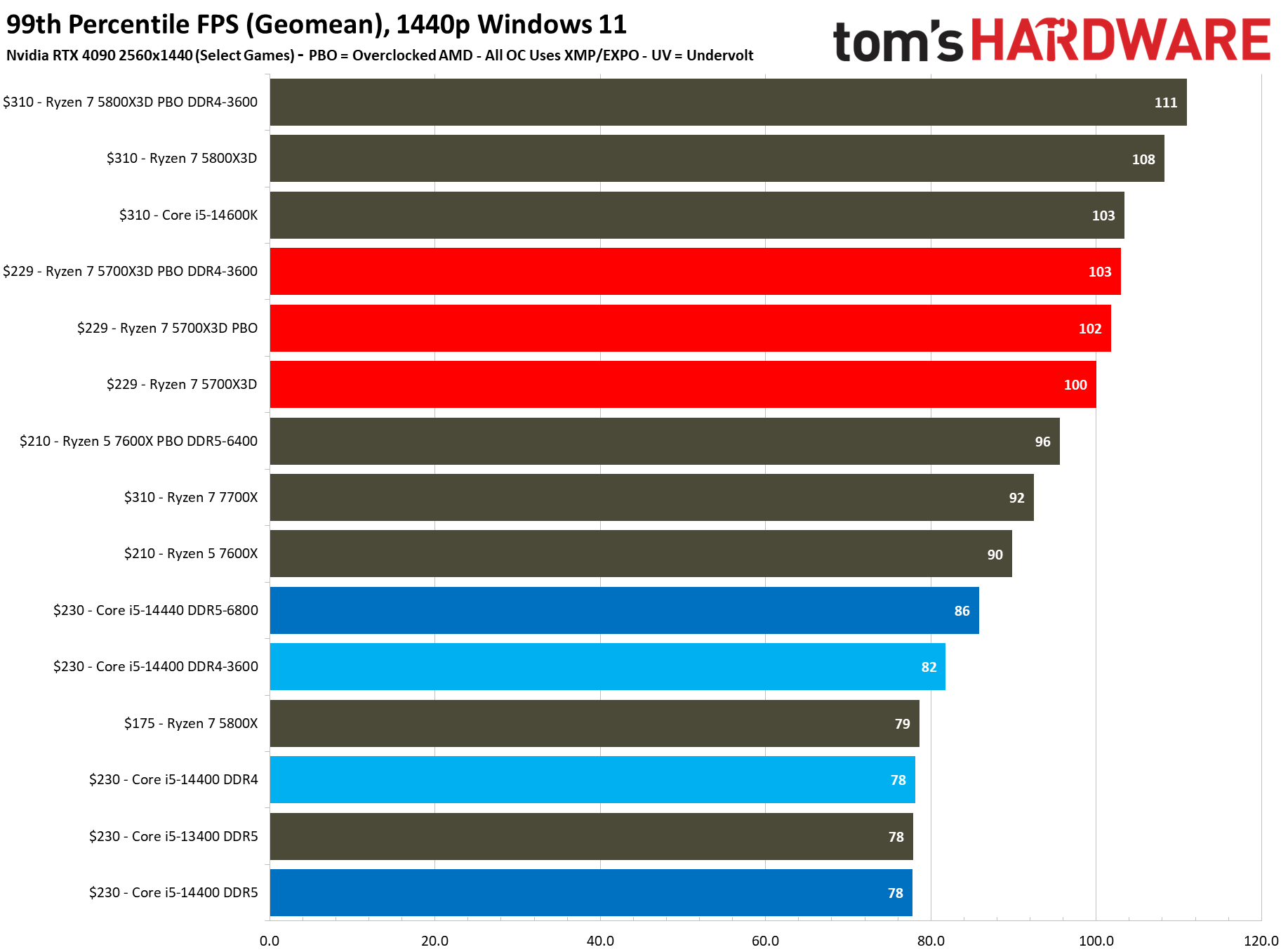
The $310 Ryzen 7 5800X3D is one of our favorite chips—it really is an amazing value if you're only interested in gaming, and it's a wonderful upgrade for AMD's existing AM4 platforms. However, the 5800X3D costs 35% more than the $229 Ryzen 7 5700X3D, but the more expensive chip is only 9% faster in 1080p gaming. (The performance delta isn't entirely surprising, as the 5800X3D has a ~10% higher boost clock rate.)
The $229 Ryzen 7 5700X3D is even more impressive compared to the $310 Core i5-14600K, delivering 3% more gaming performance at stock settings. The Ryzen 7 5700X3D is also an incredible 30% faster than the stock $230 Core i5-14400, yet these chips are available at the same price point.
The Ryzen 7 5700X3D doesn't officially support overclocking, but crafty motherboard vendors have sidestepped those limitations with BIOS tweaks. Enabling PBO gives us a ~1.5% gain, and enabling memory overclocking confers another slight ~1.5% gain, resulting in a ~3% performance gain overall with very affordable memory and comparatively easy cooling requirements. That makes the Ryzen 7 5700X3D around 23% faster in gaming than the Core i5-14400 configuration with overclocked memory.
Be aware that the 3D V-Cache tech, combined with the older Zen 3 architecture, results in lower performance in productivity apps, as you can see on the following page.
If you're looking for a solid all-rounder that is proficient in both gaming and productivity applications, the $210 Ryzen 5 7600X is a winner. It ties the Core i5-14400 DDR5-6800 configuration at stock settings and provides 14% more performance than the stock Core i5-14400. Flipping on EXPO and Precision Boost Overdrive (PBO) brings the 7600X's memory to DDR5-6400 and boosts performance by another 5%. This Zen 4 chips' lower price point represents better value for your dollar than the 14400, and reduced pricing for B650 and DDR5 has drastically improved the Zen 4 proposition. We use the Ryzen 5 7600X as a proxy for the Ryzen 5 7600, which is another option that retails for $190 and is about 3% slower in gaming than the 7600X.
That said, the Ryzen 7 5700X3D is 13% faster at 1080p gaming than the 7600X at stock settings, and 8% faster after overclocking both chips. You'll have to step up to an AM5 platform to use the 7600X, which adds quite a bit of cost over the affordable and plentiful AM4 ecosystem.
Get Tom's Hardware's best news and in-depth reviews, straight to your inbox.
If you're only interested in gaming and can accept the shortcomings in productivity apps, or if you're upgrading an existing AM4 system, the 5700X3D is a wonderful option. The deltas in these charts can be slim, and large deltas in individual game titles, like with the Ryzen 7 5700X3D and the 5800X3D, impact cumulative measurements. Performance deltas between AMD and Intel chips can vary based on the title (particularly with DDR4 vs. DDR5) and the GPU you use. It's best to make an informed decision based on the types of titles you play most frequently, so be sure to check out the individual tests below.
Borderlands 3 on AMD Ryzen 7 5700X3D
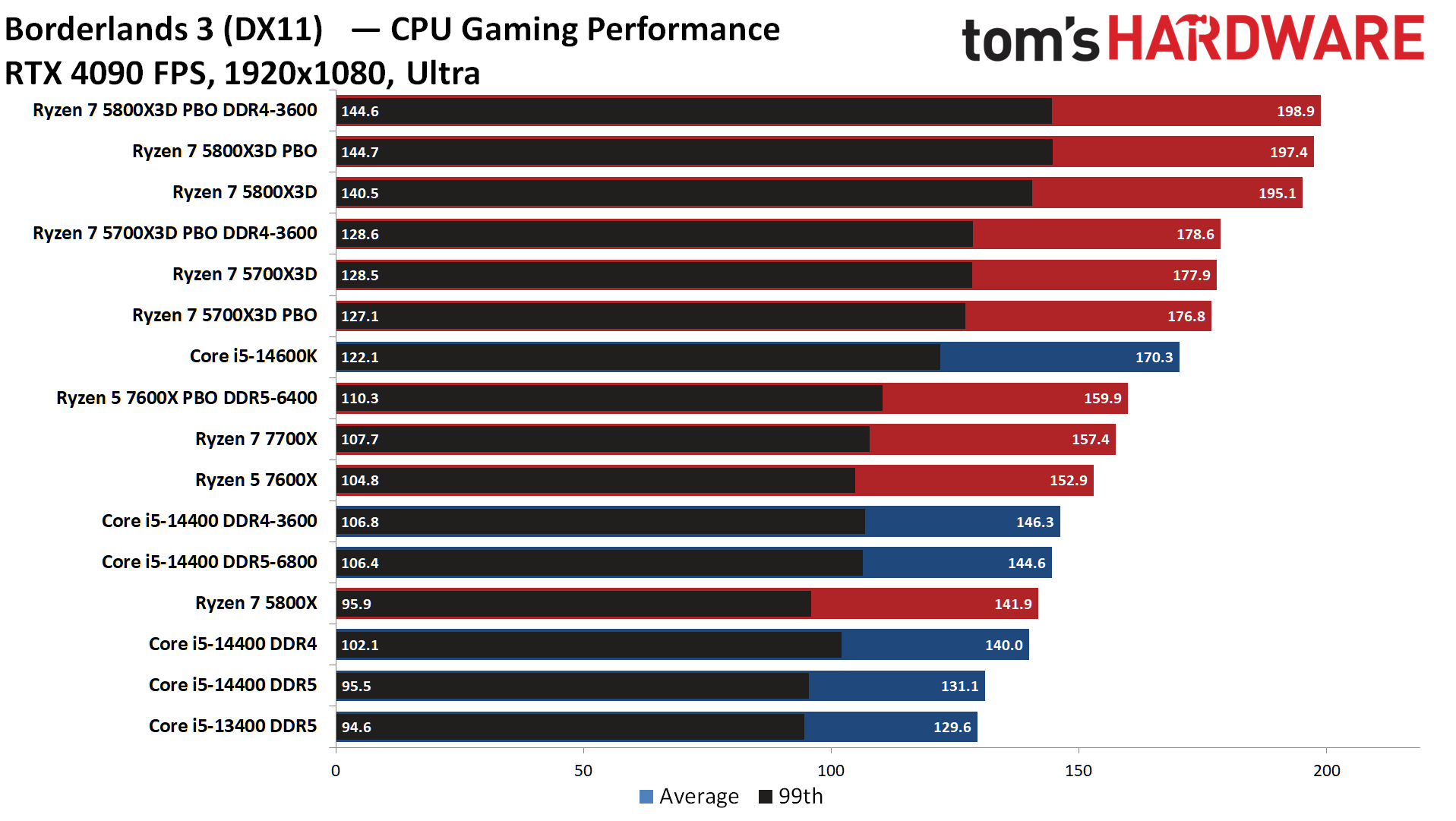
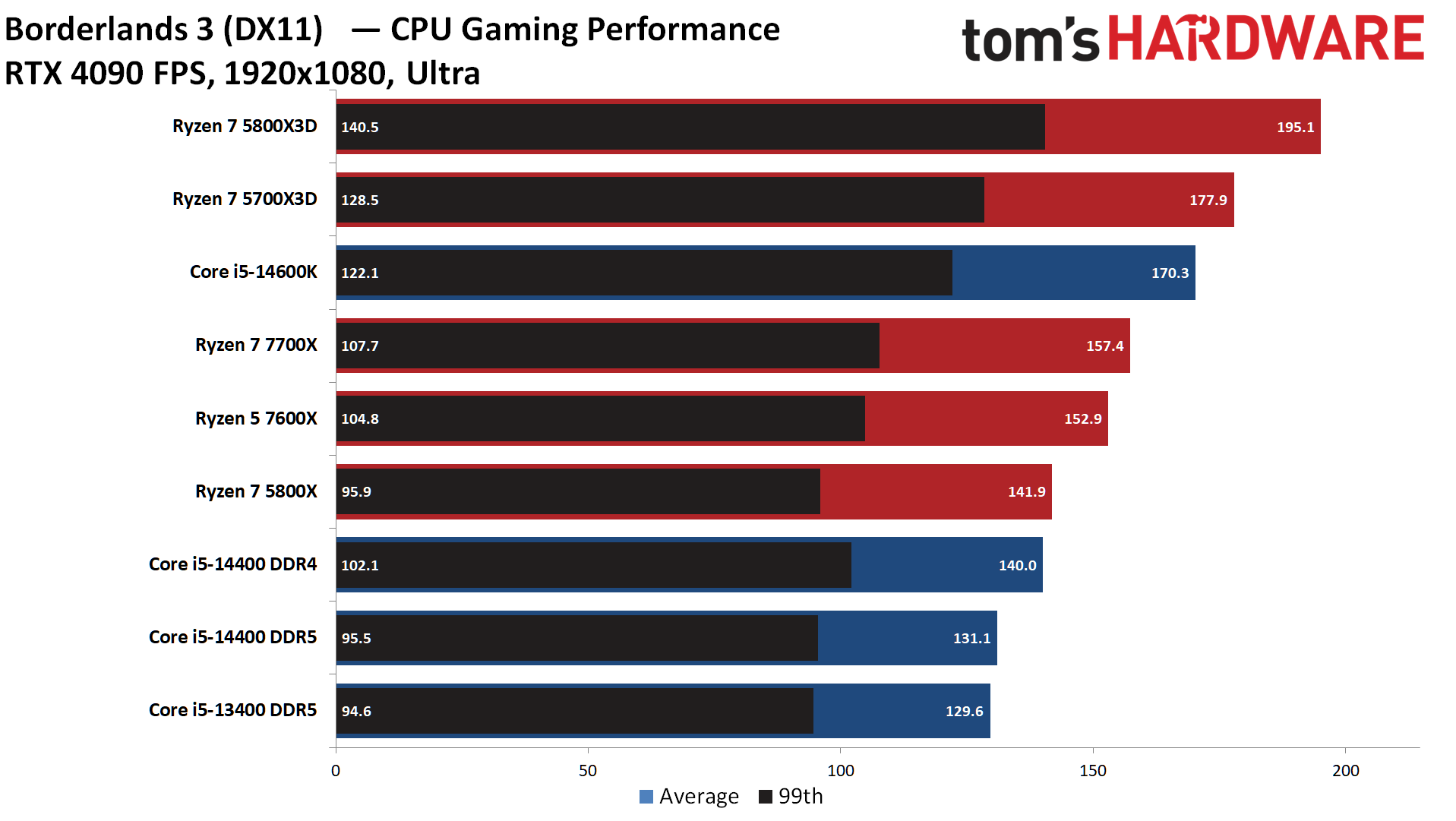
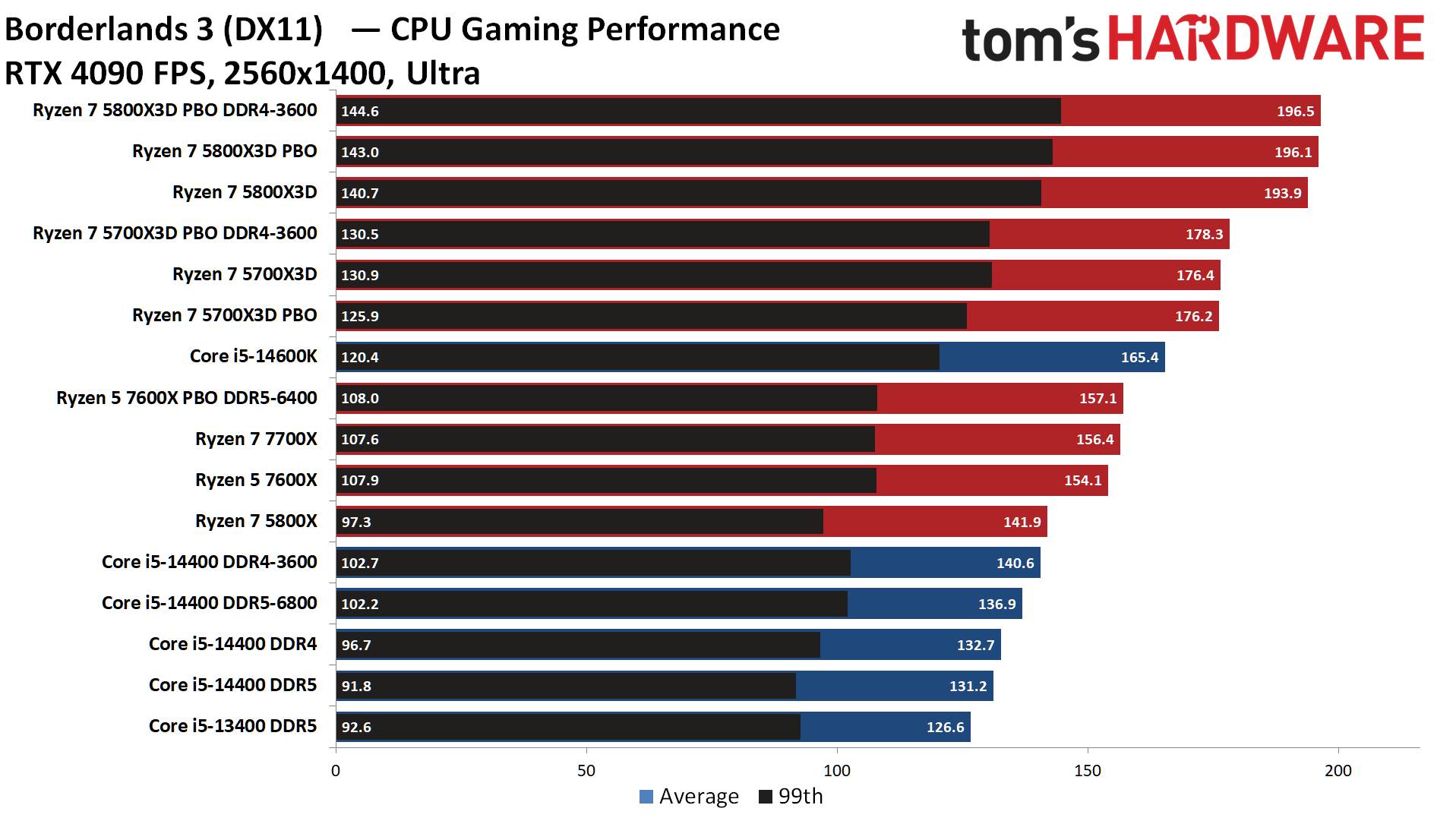
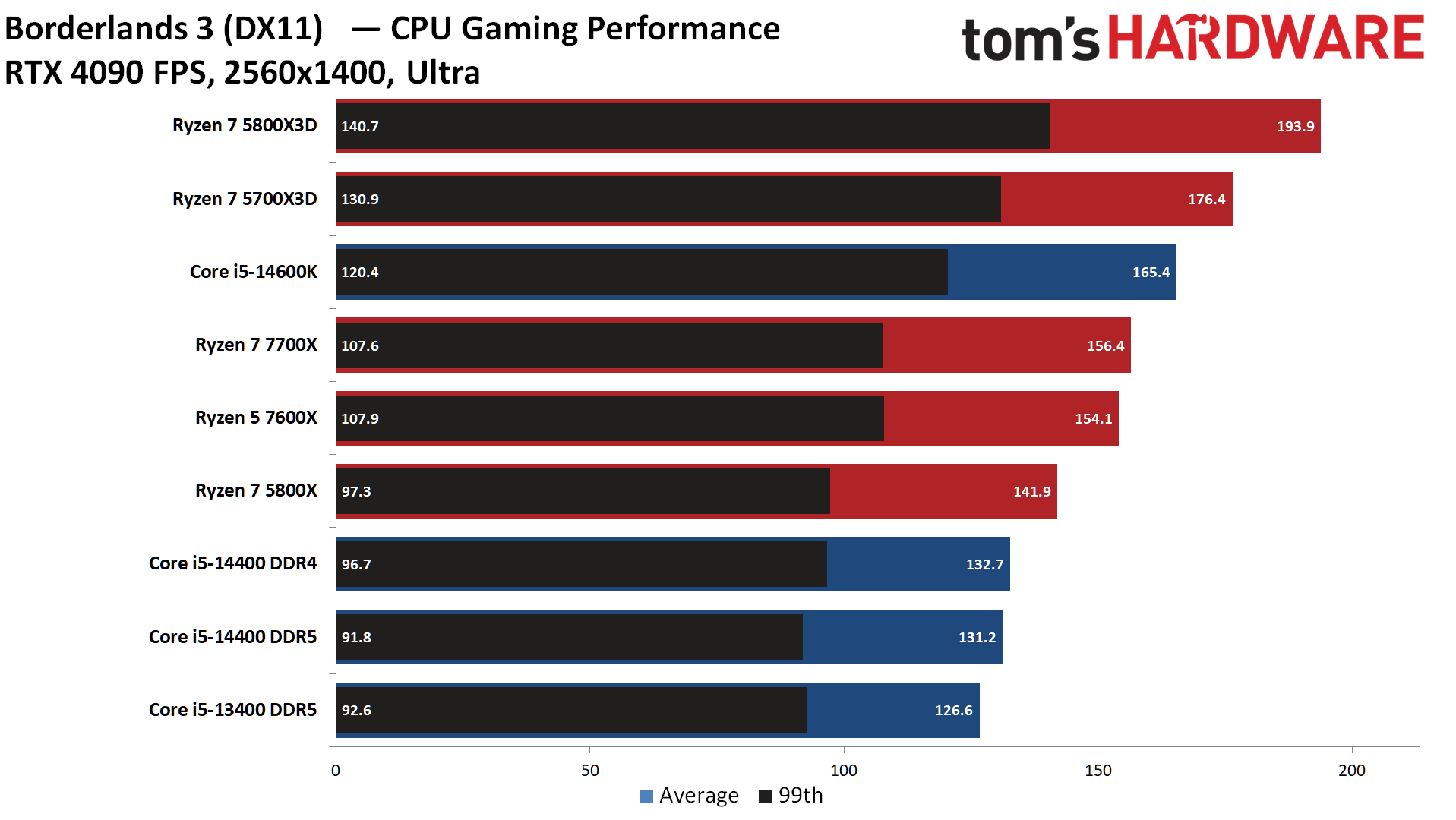
Cyberpunk 2077 on AMD Ryzen 7 5700X3D
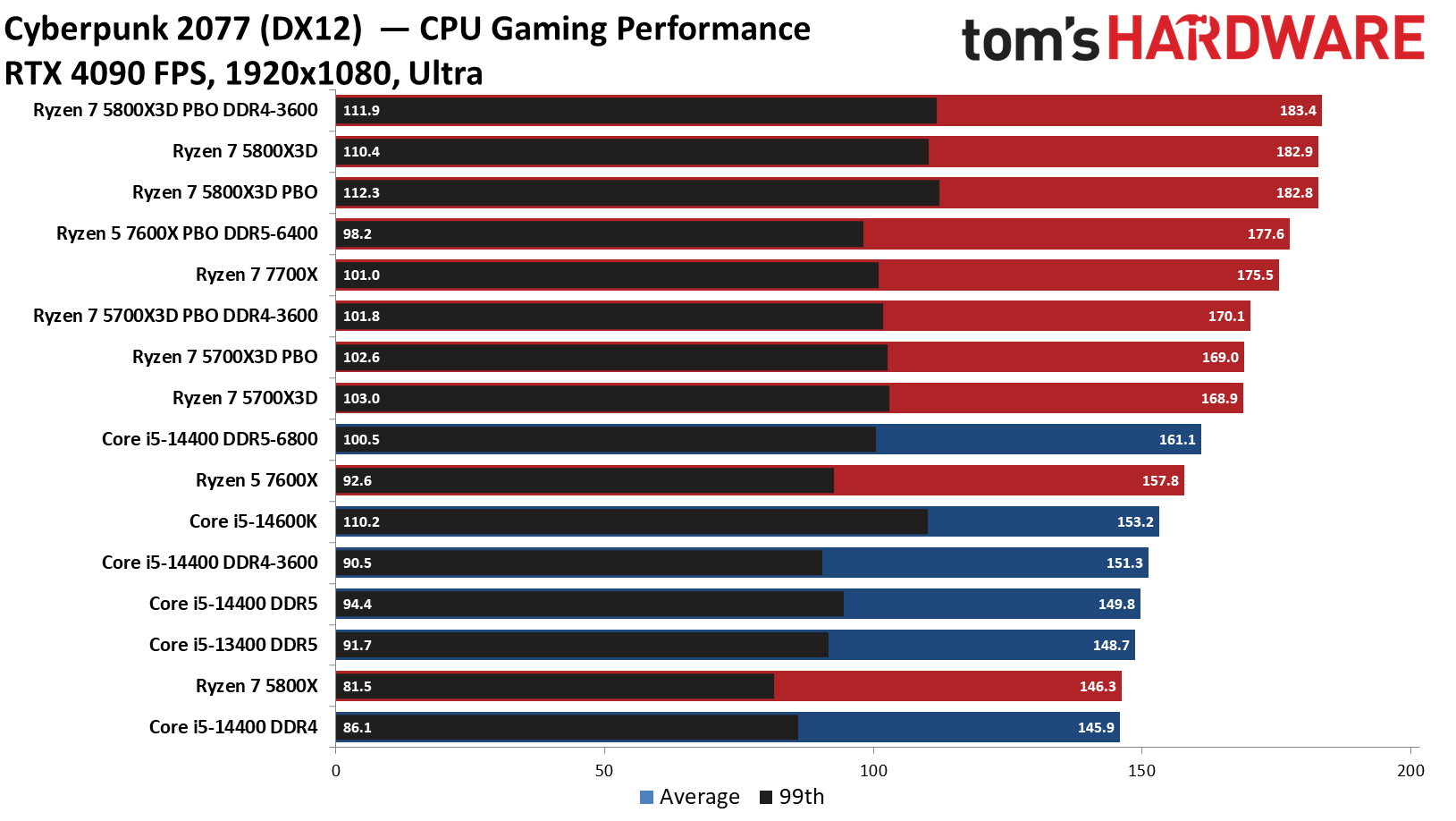
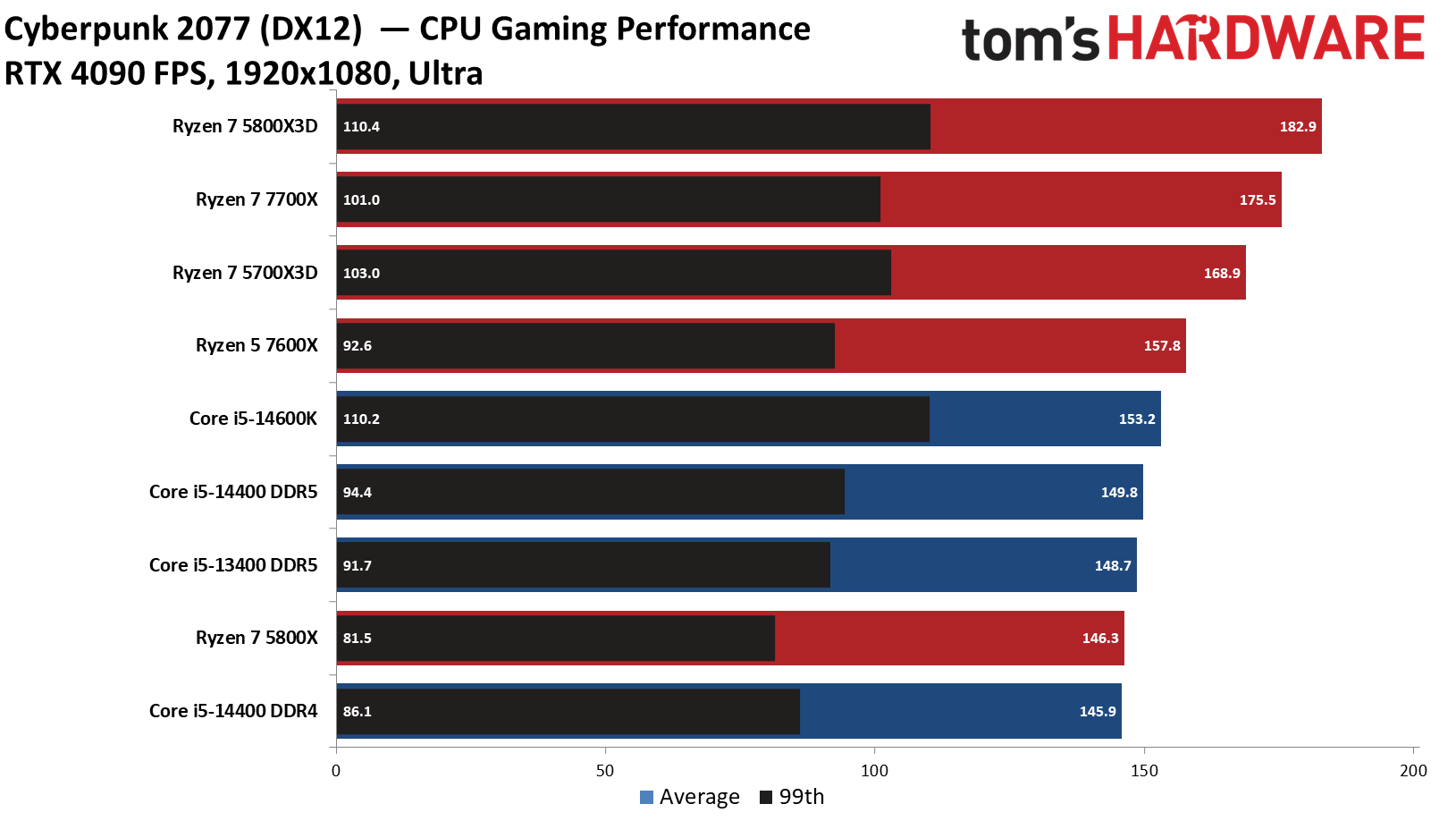
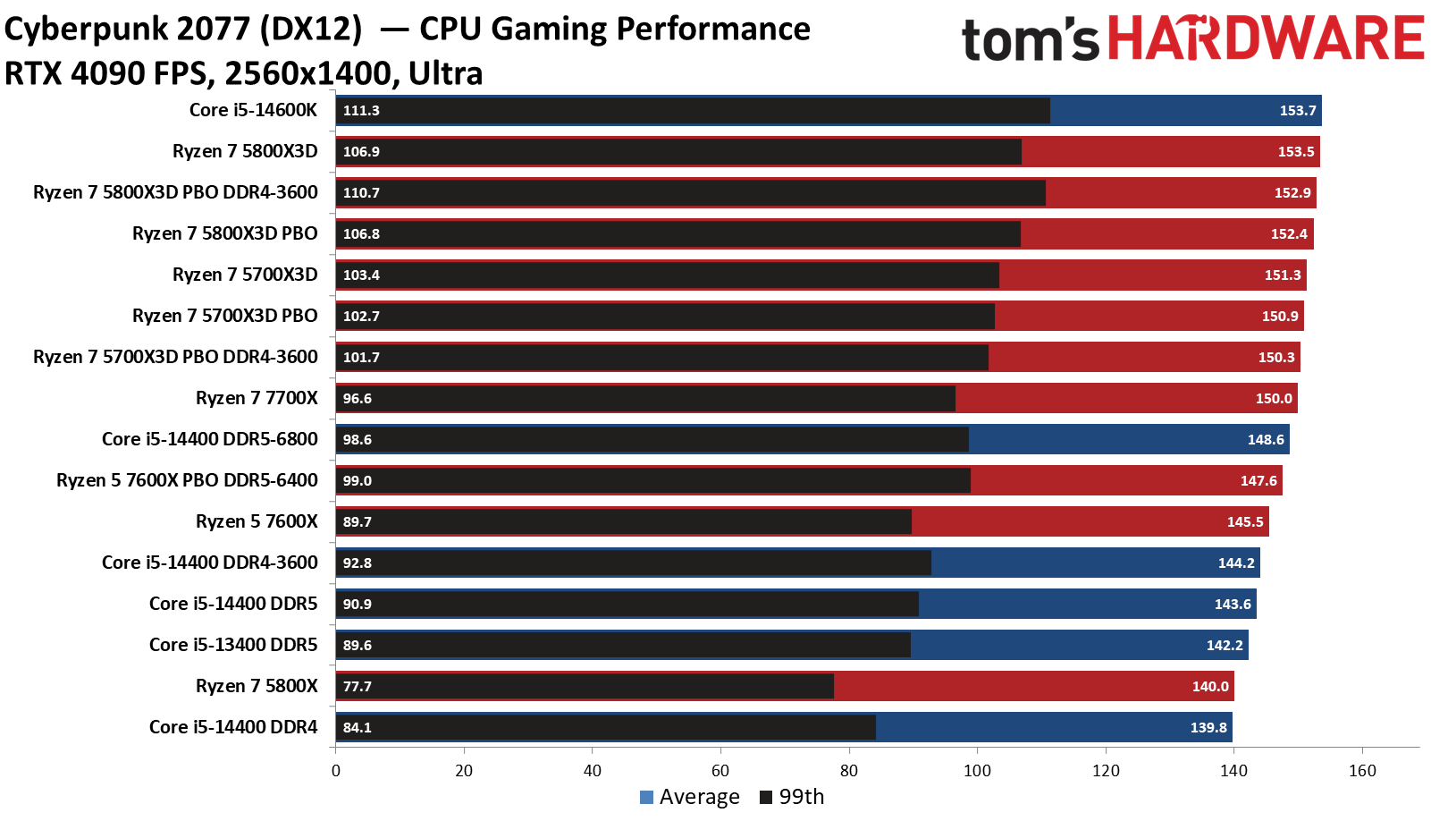
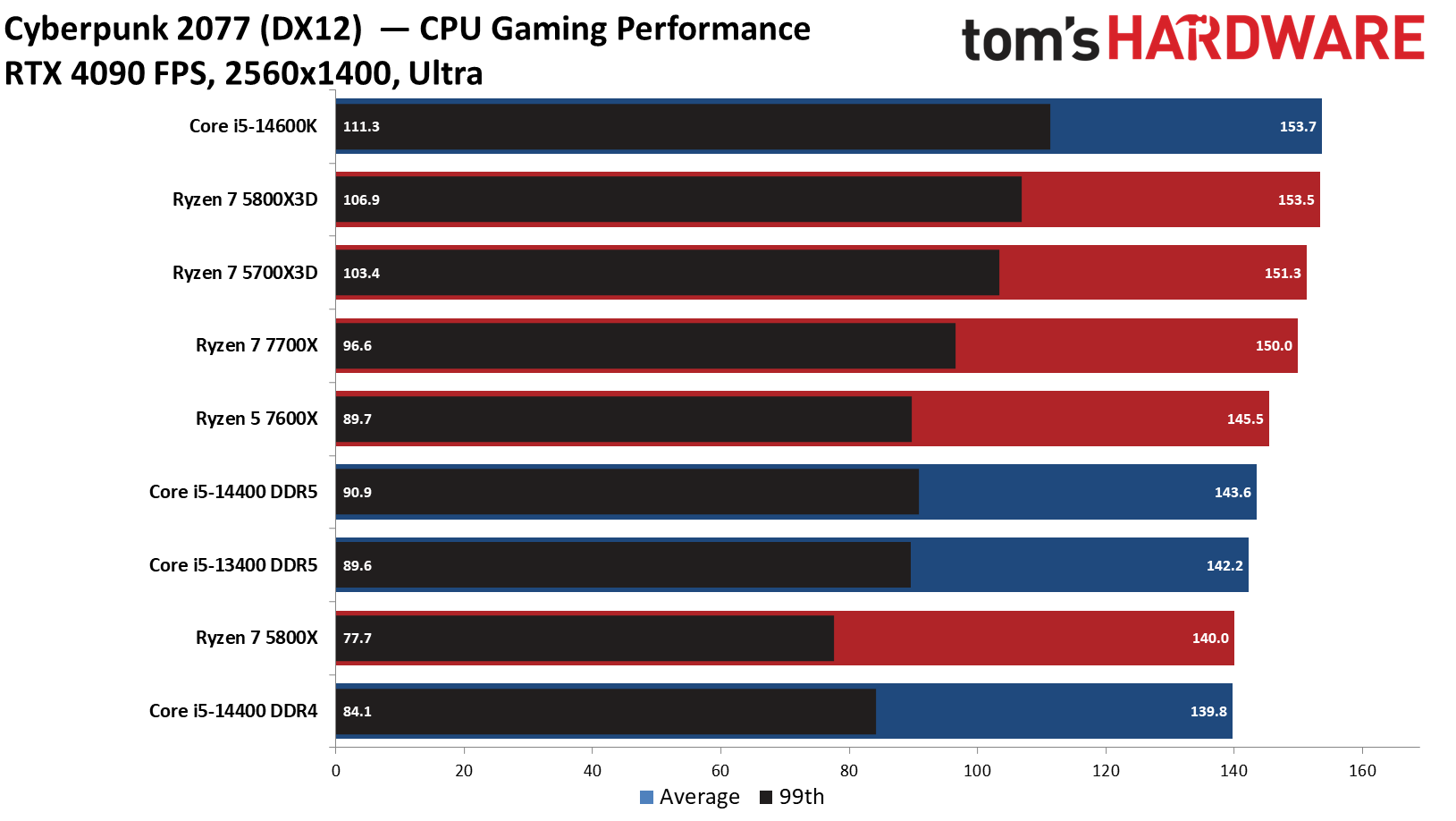
F1 2023 on AMD Ryzen 7 5700X3D
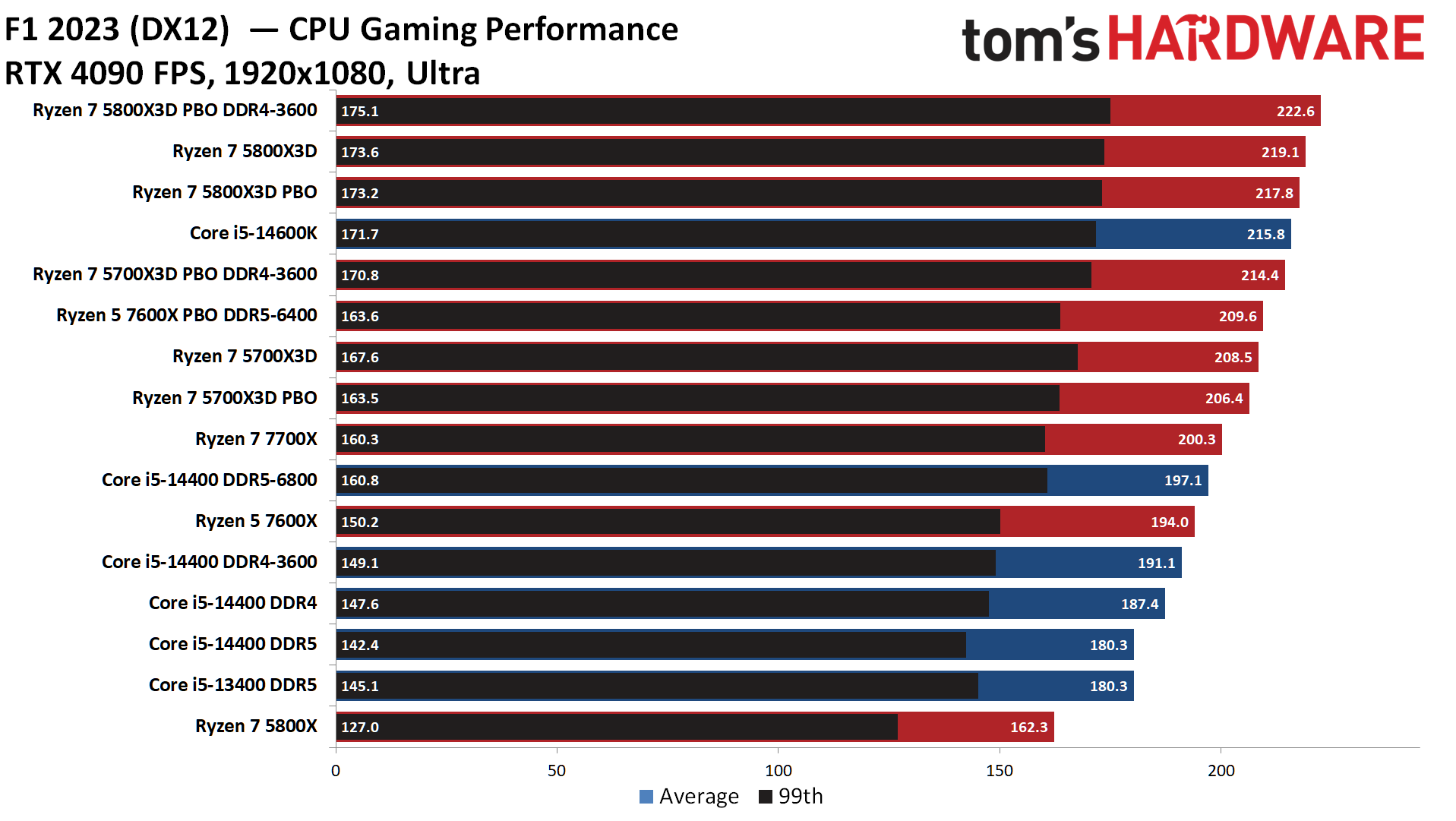
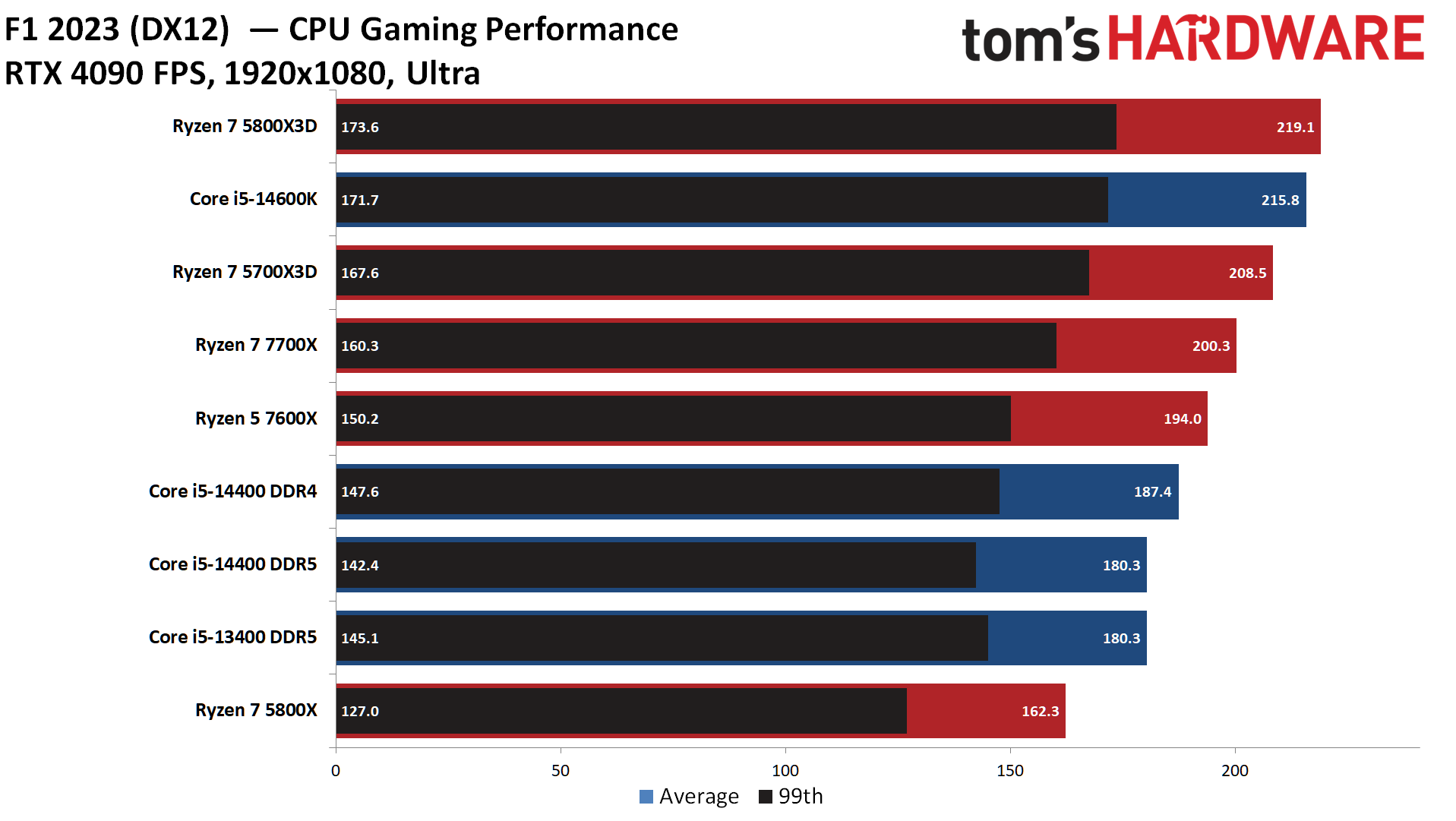
Far Cry 6 on AMD Ryzen 7 5700X3D
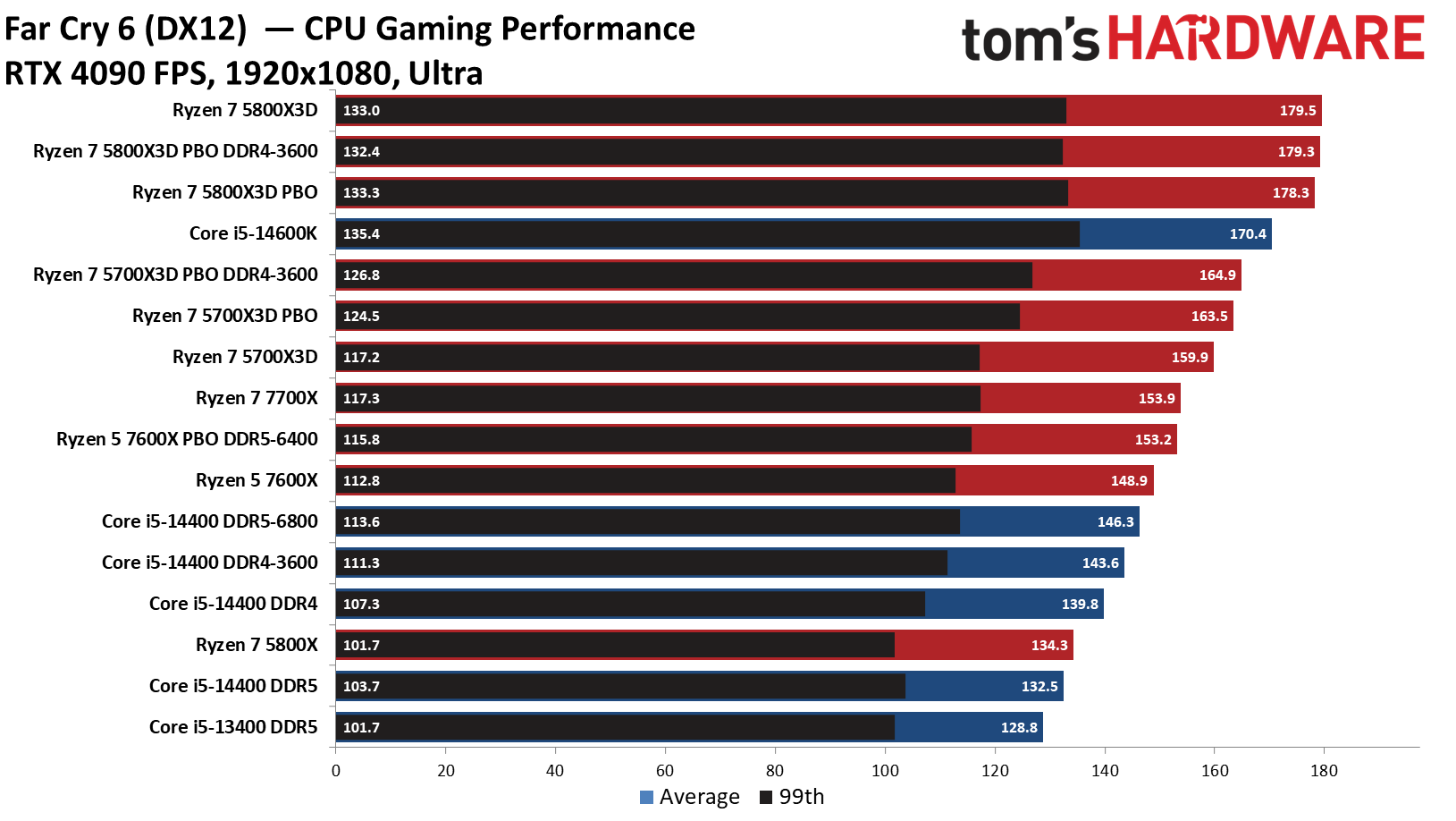
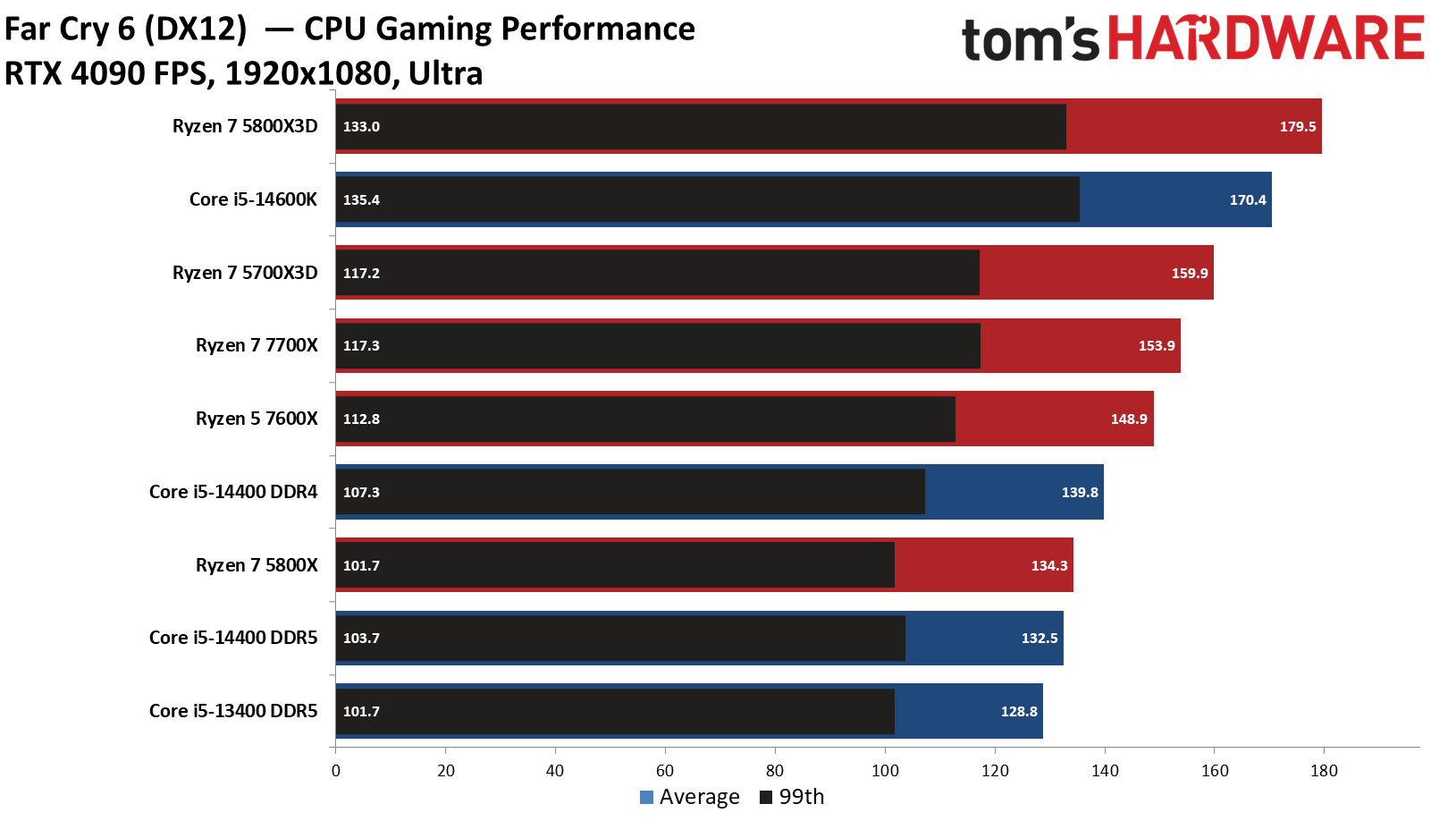
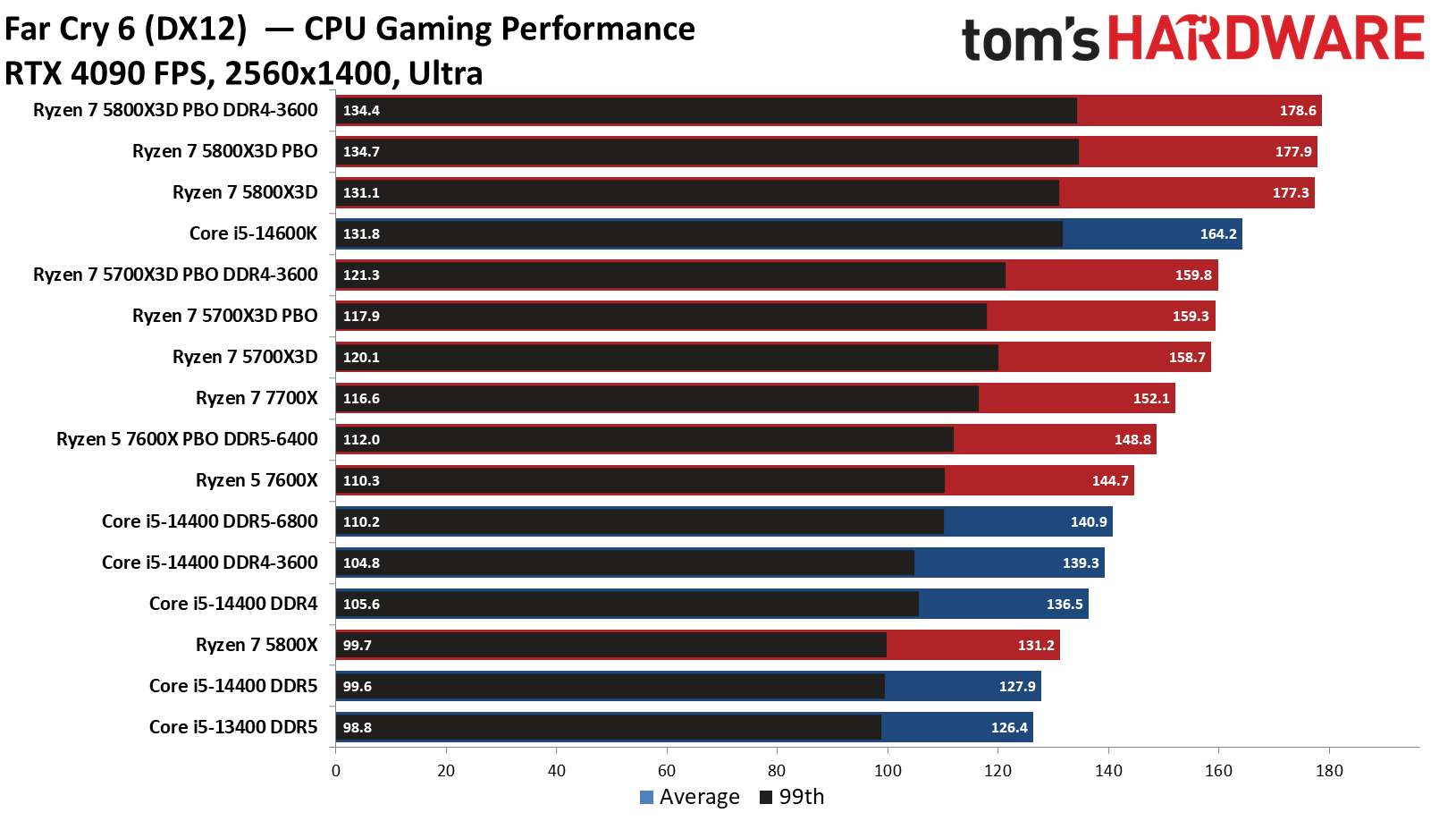
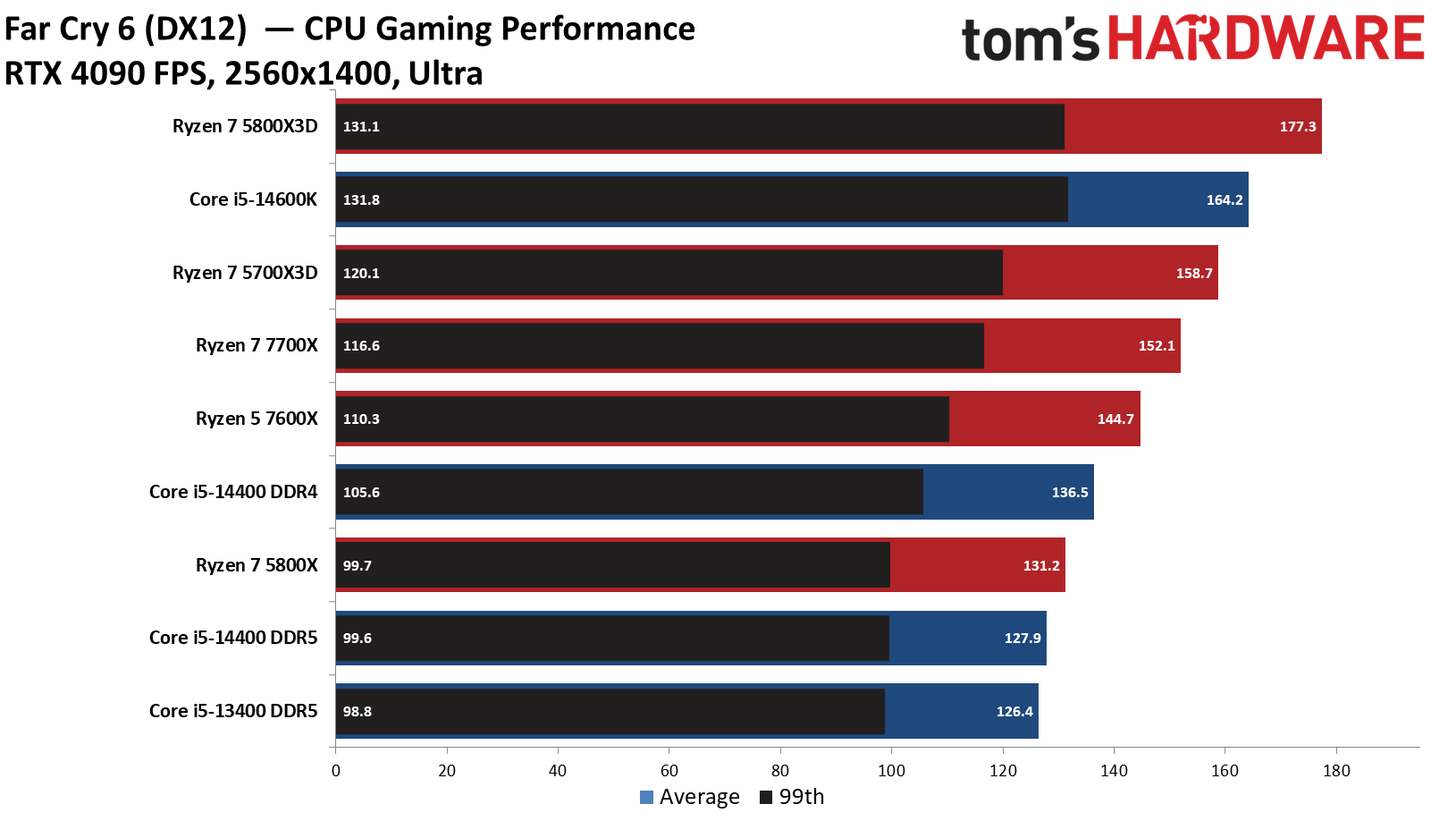
Hitman 3 on AMD Ryzen 7 5700X3D
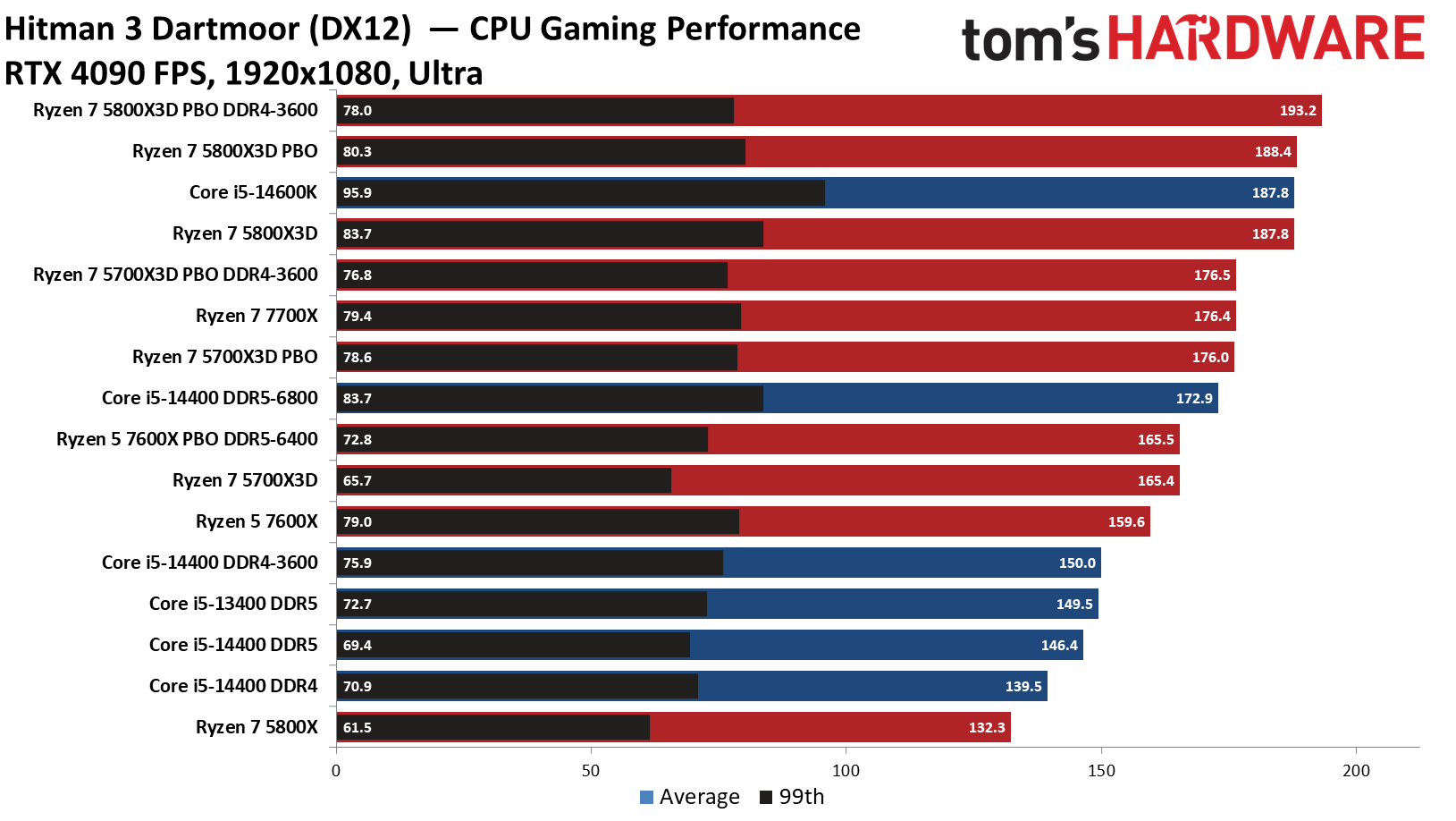
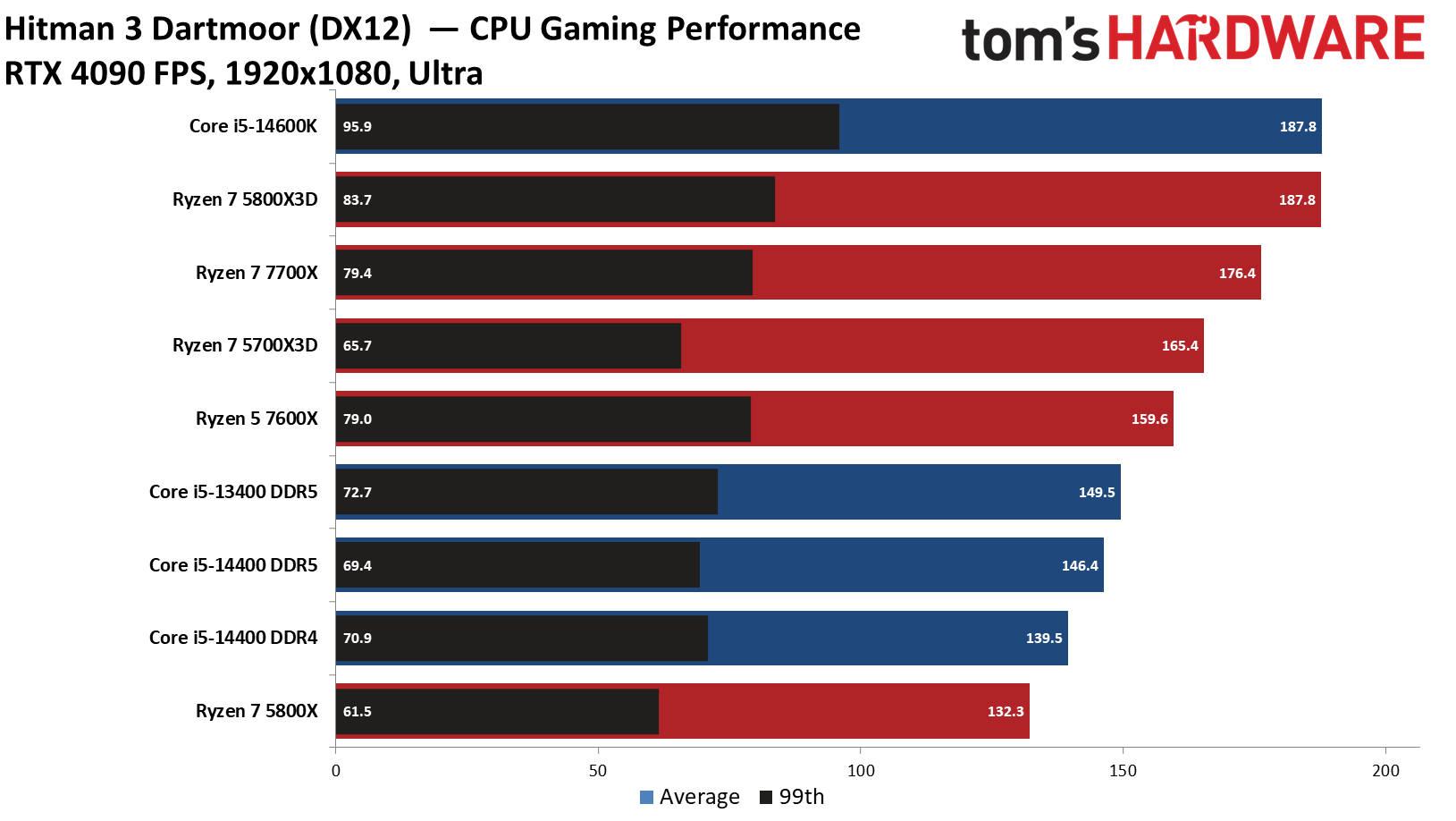
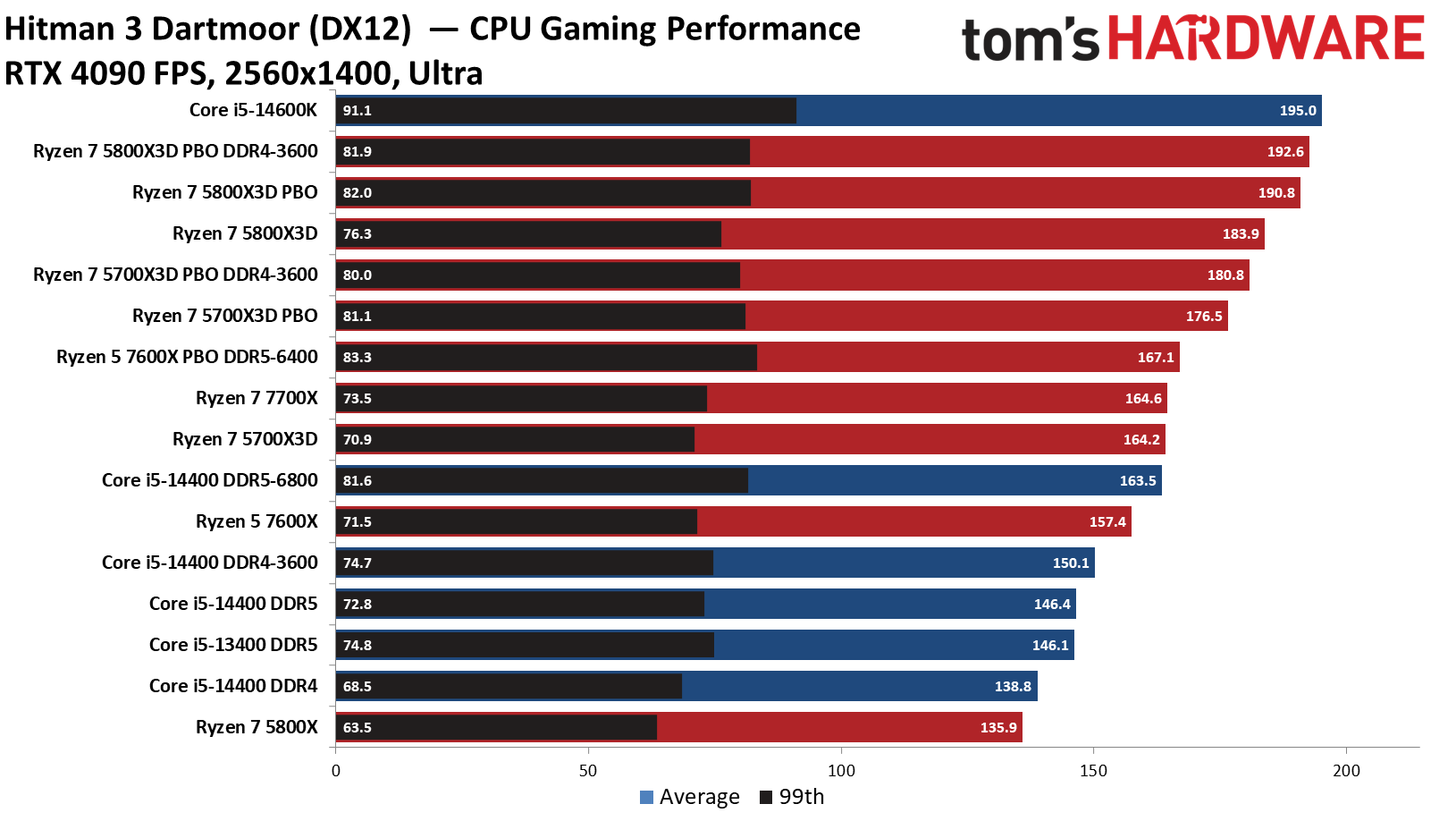
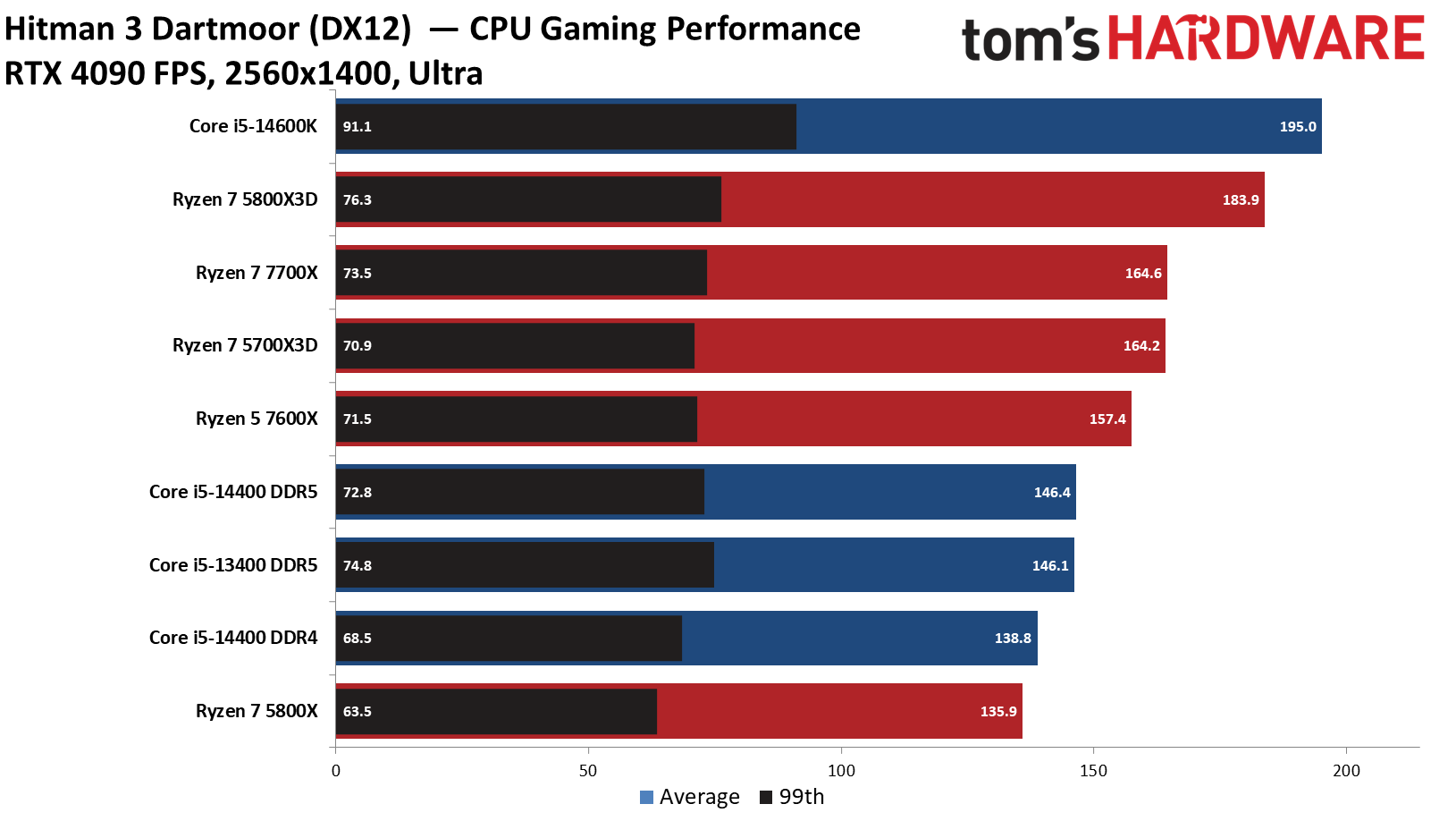
Minecraft on AMD Ryzen 7 5700X3D
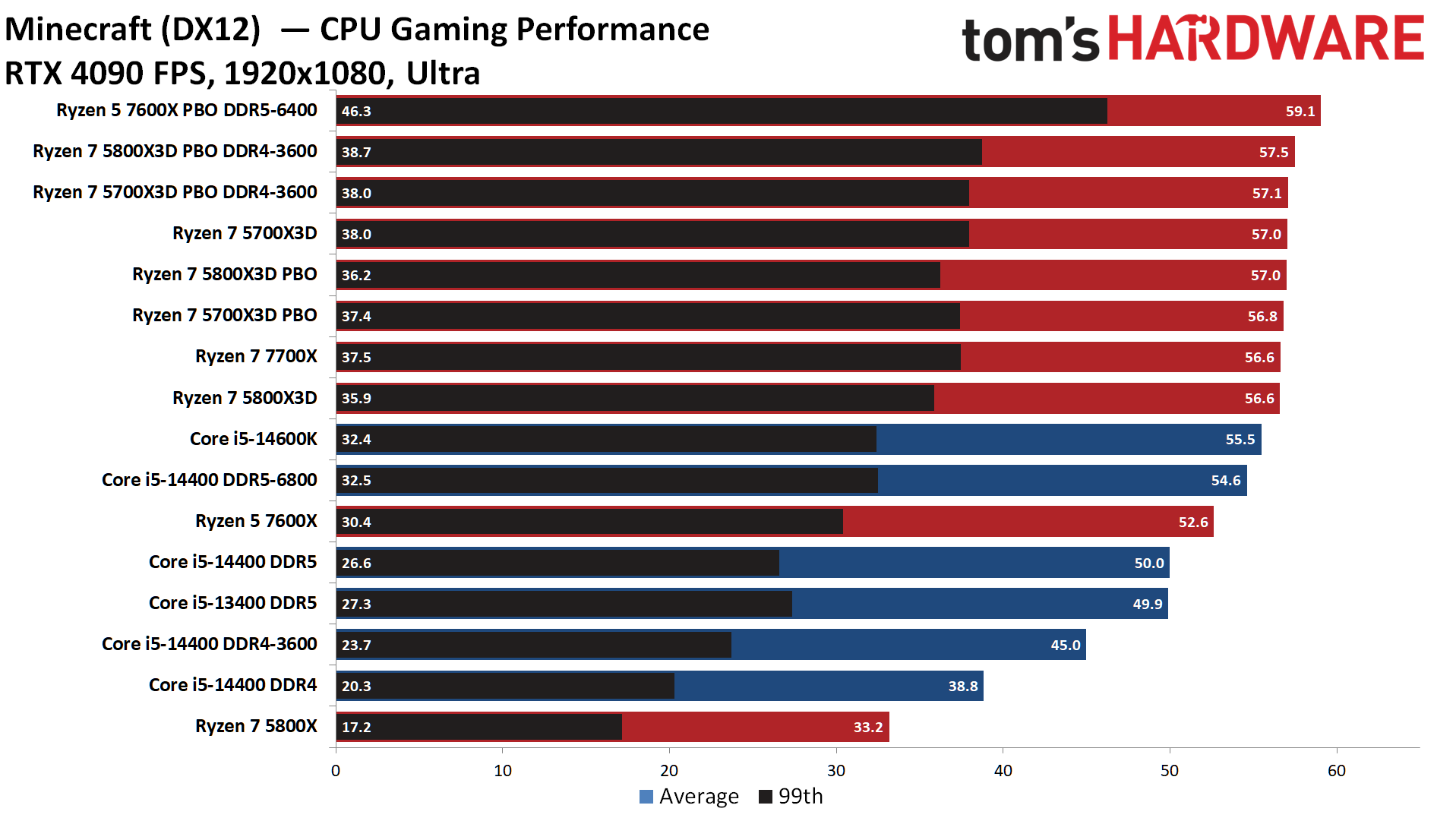
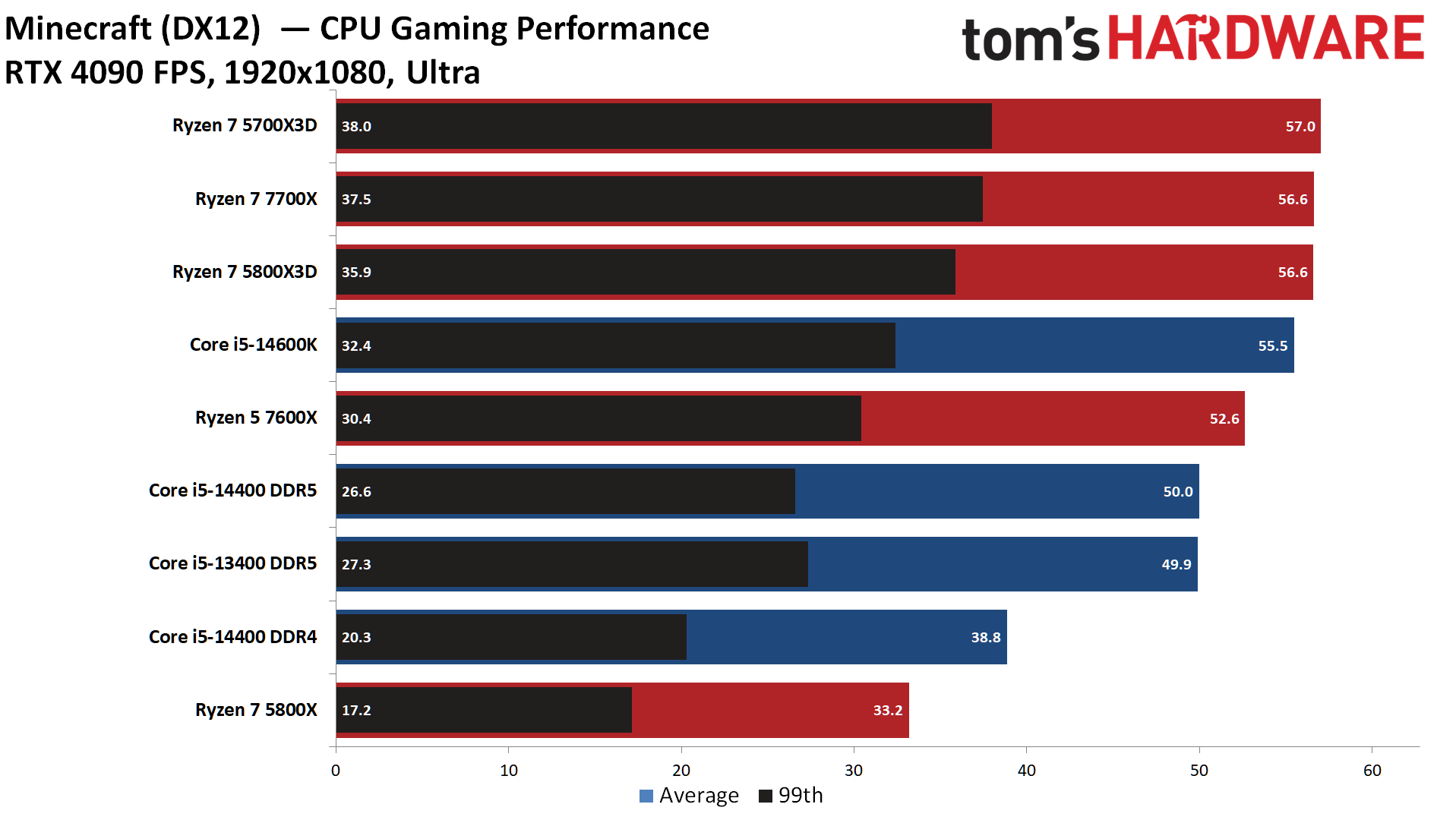
Microsoft Flight Simulator 2021 on AMD Ryzen 7 5700X3D
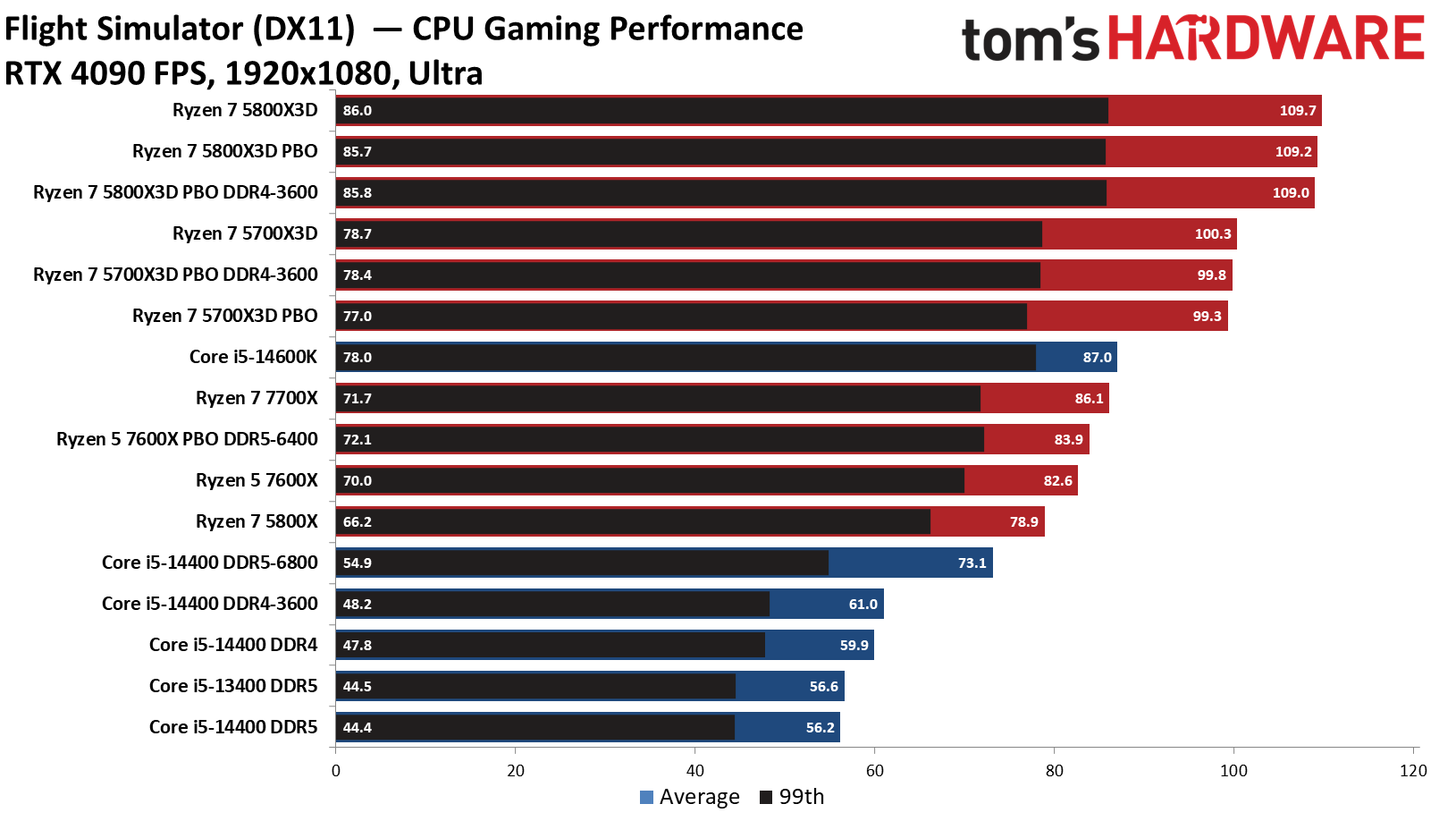
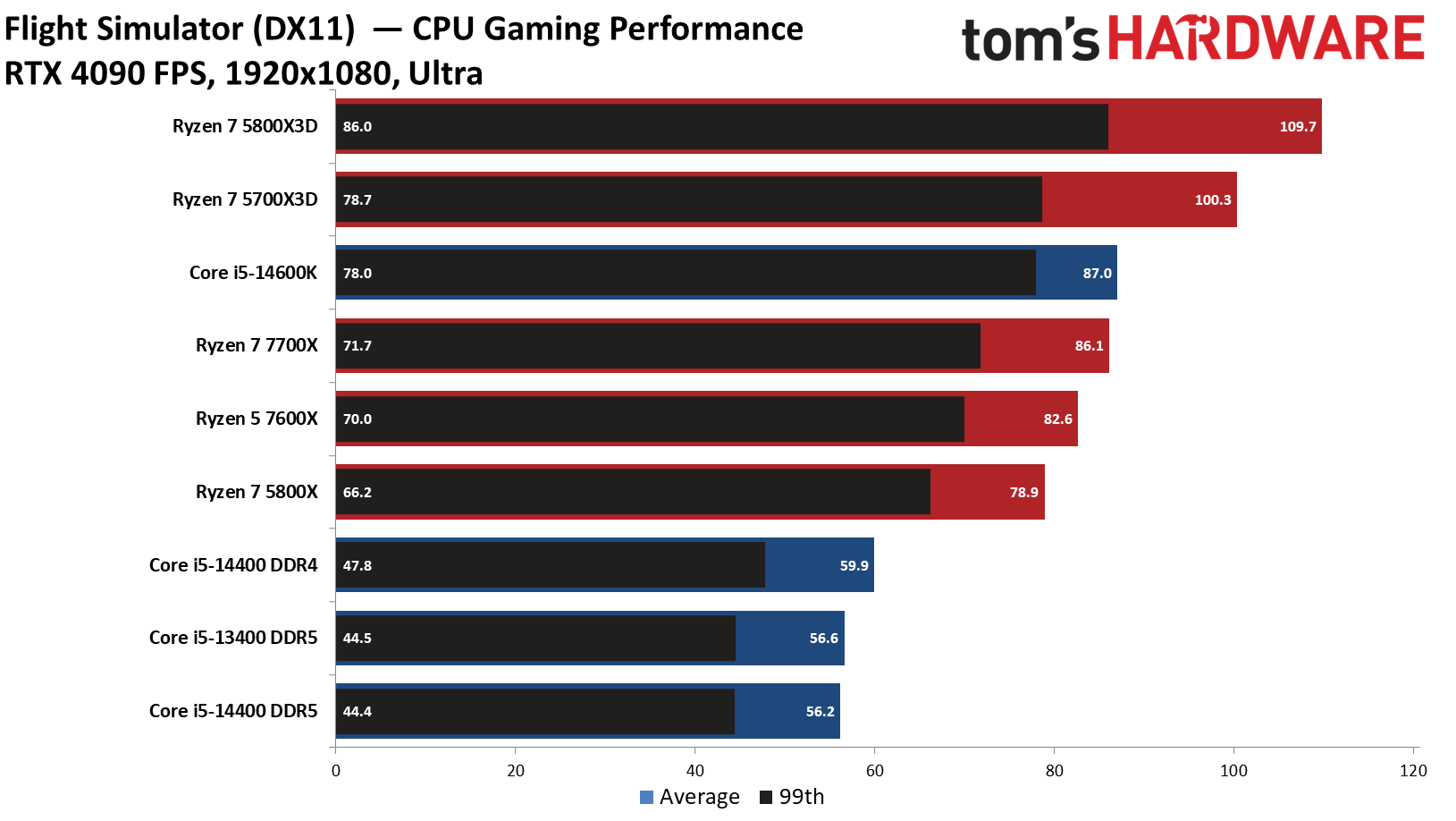
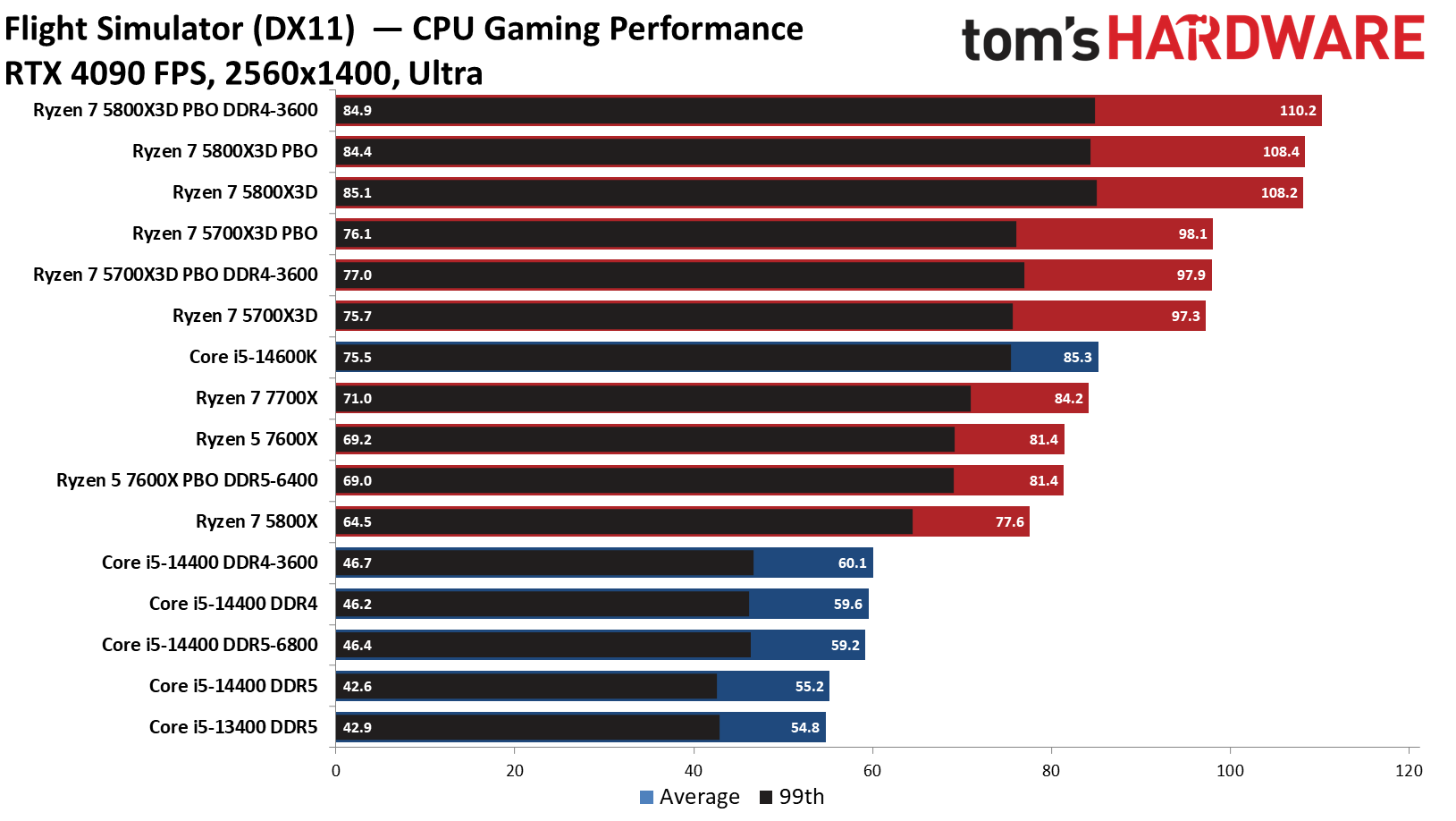
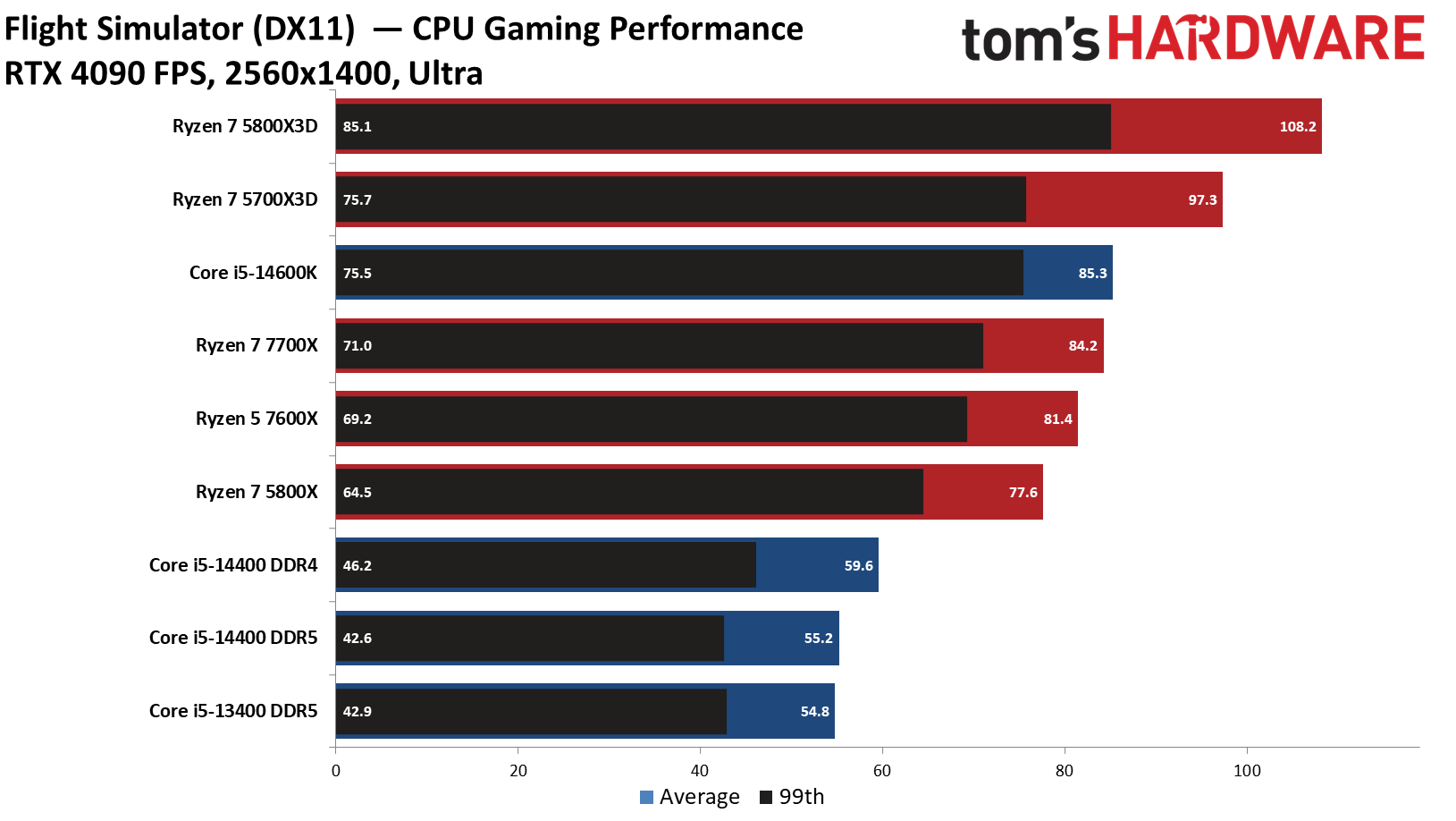
Watch Dogs Legion on AMD Ryzen 7 5700X3D
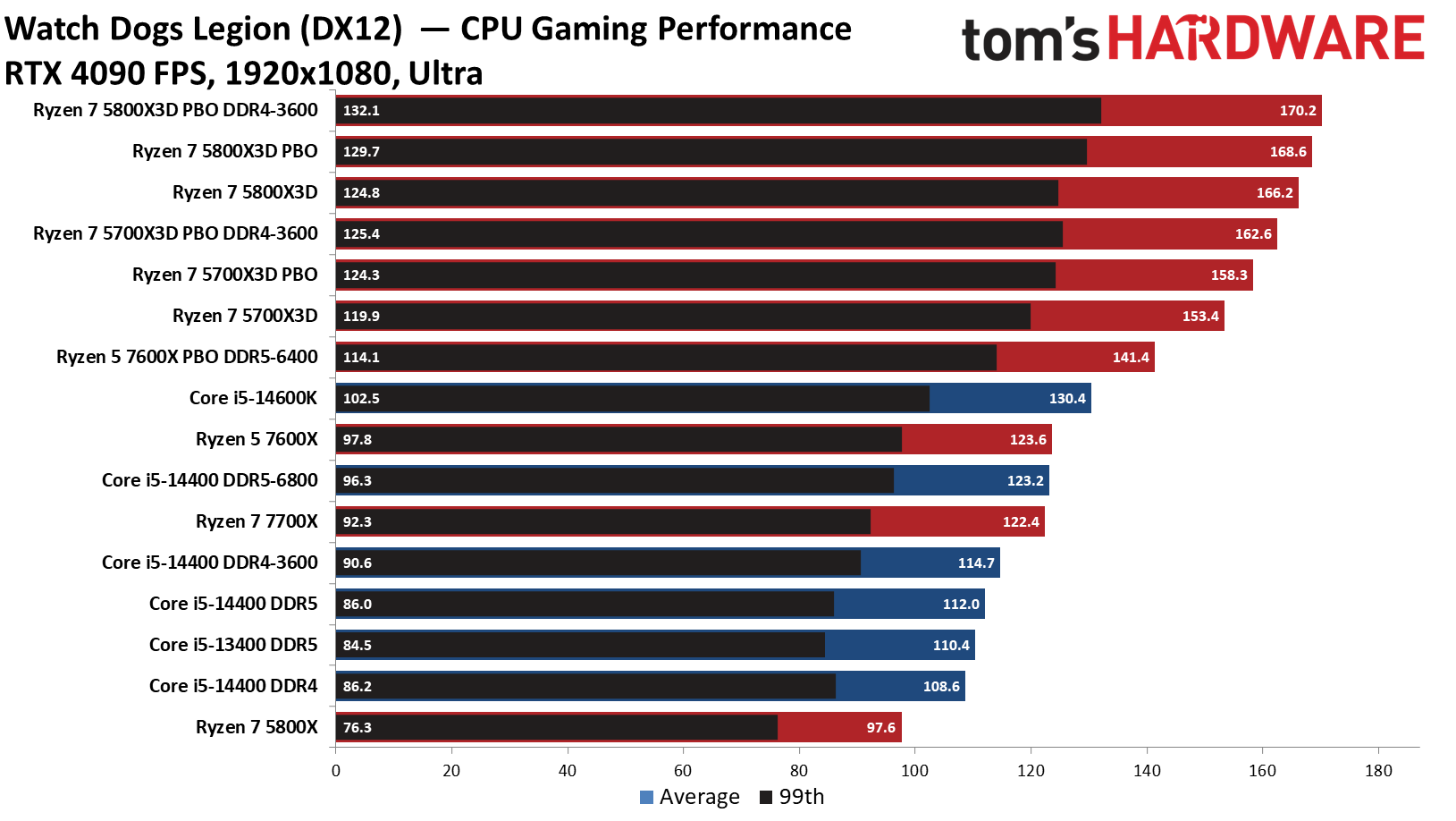
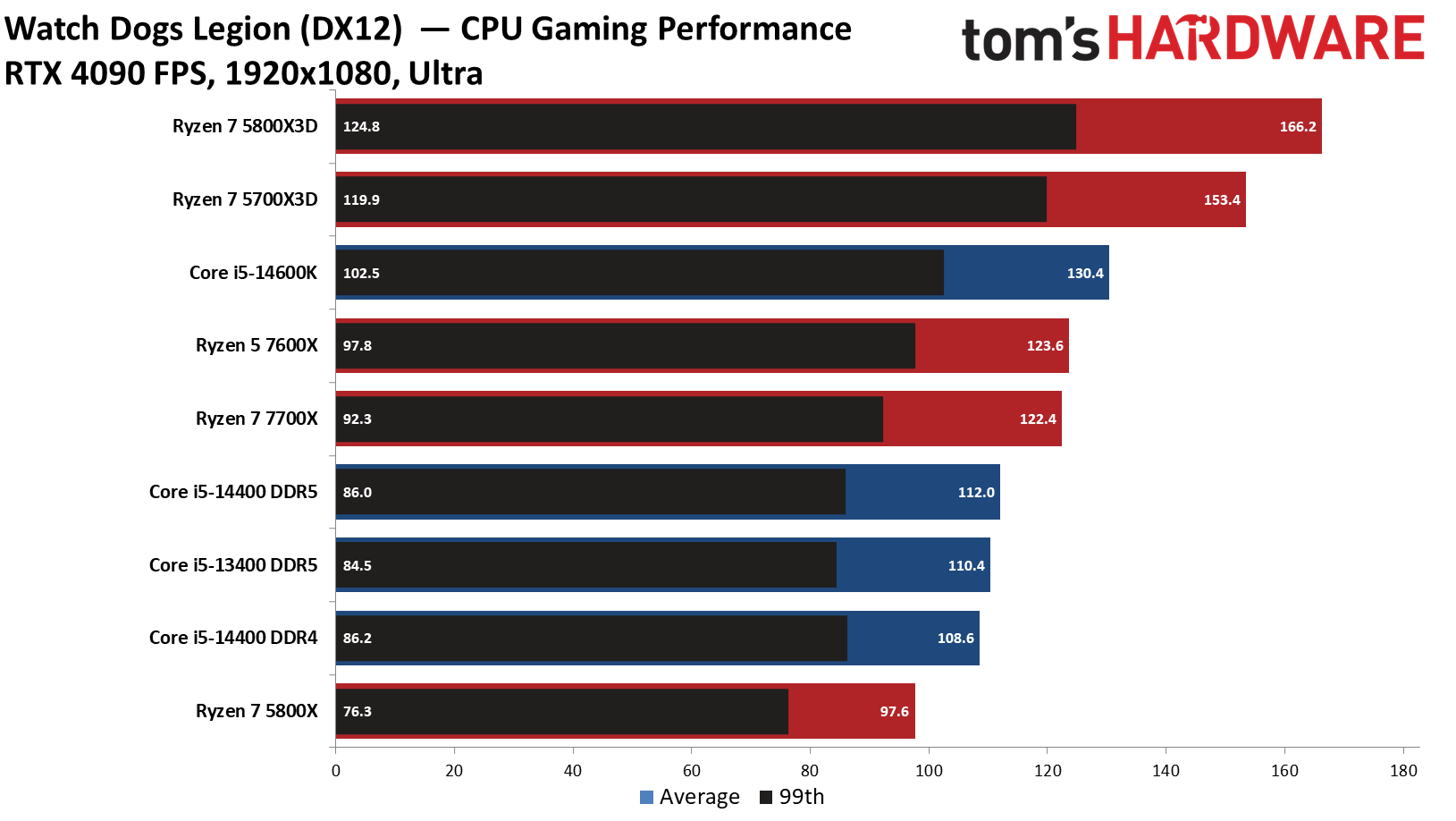
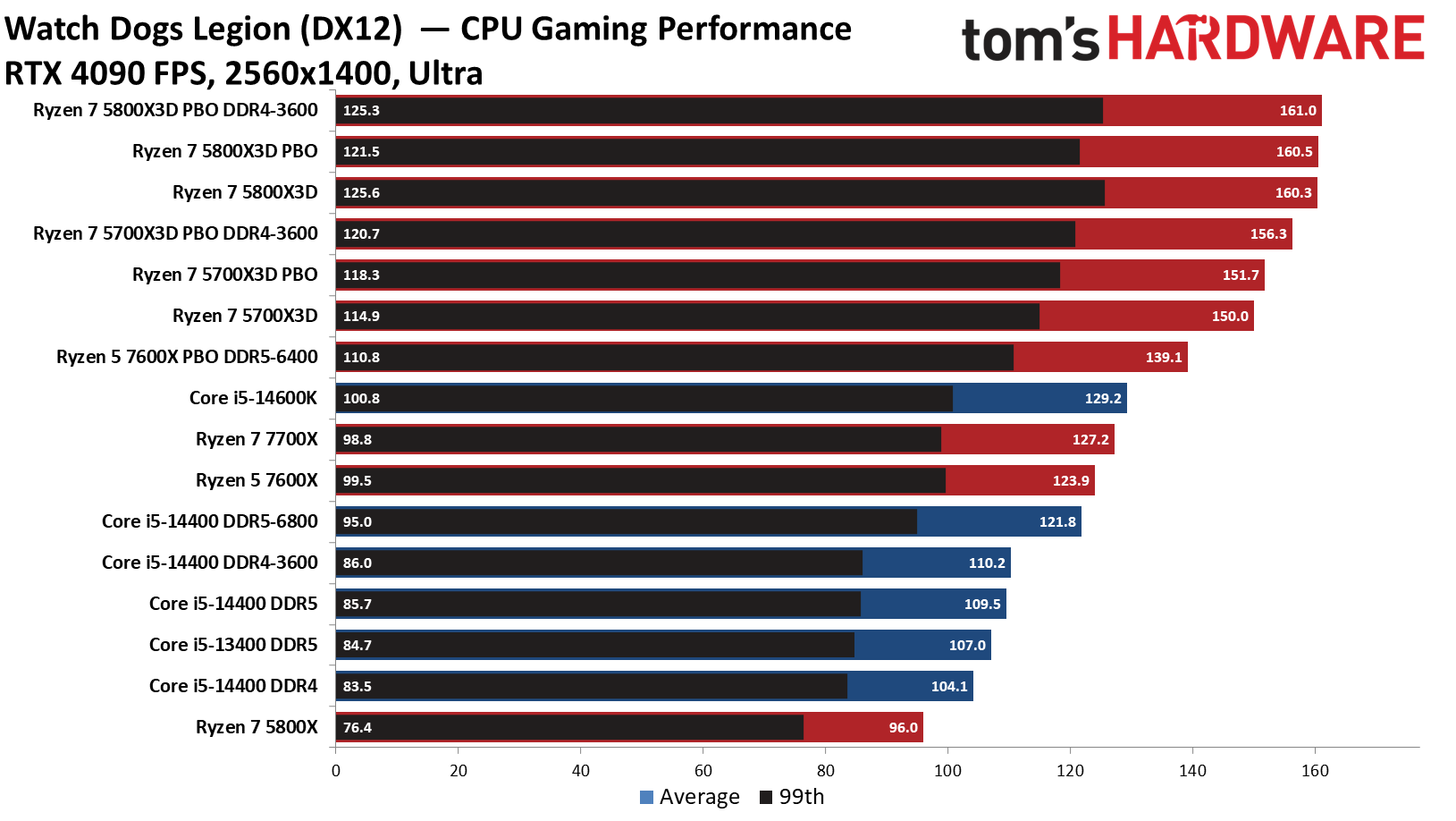
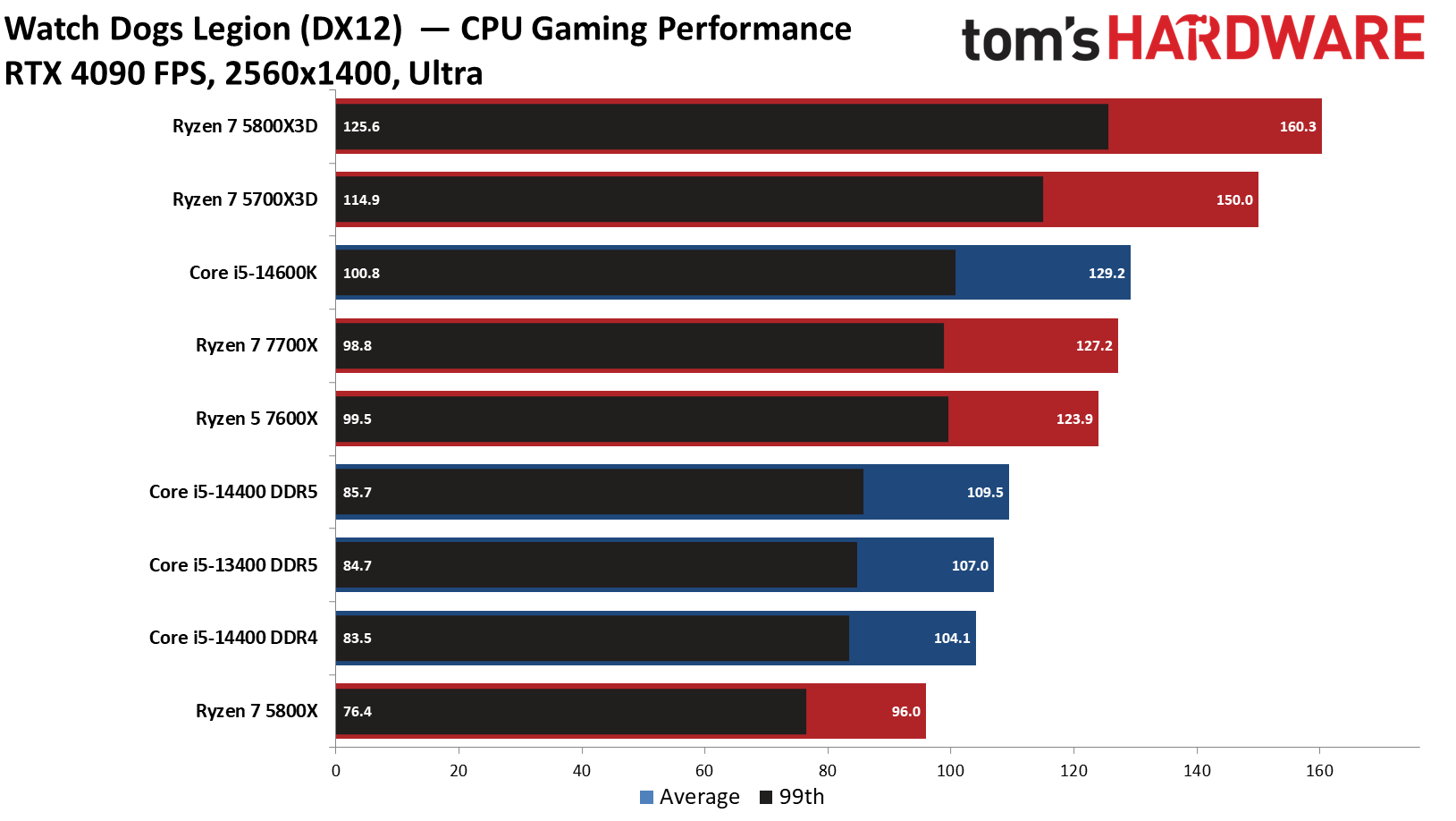
- MORE: Best CPU for gaming
- MORE: CPU Benchmark Hierarchy
- MORE: Intel vs AMD
- MORE: How to Overclock a CPU
Current page: AMD Ryzen 7 5700X3D Gaming Performance
Prev Page Moar Cache, Lower Pricing Next Page AMD Ryzen 7 5700X3D Productivity Benchmarks
Paul Alcorn is the Editor-in-Chief for Tom's Hardware US. He also writes news and reviews on CPUs, storage, and enterprise hardware.
-
Avro Arrow The R7-5700X3D is TOTALLY what AM4 gamers should upgrade to before changing platforms. The only reason that I have an R7-5800X3D is that, when I bought it, it was on sale for $100CAD off and the R7-5700X3D didn't yet exist.Reply
The weird thing about AM4 is that, while it was released in 2016, the first AM4 motherboards weren't released until February of 2017. So technically, it's almost 8 years old but functionally, it just turned 7 last month.
I guess that it took about five months for the AIBs to get the motherboards made. -
parkerthon Reply
I just am amazed we’re at this point that builds can make it so many years for a gaming PC. Things have definitely changed in the last decade. It’s nice to be able to build something that has legs for 5+ years. Then swap a gpu, maybe add new ssd or more memory, and get three more.Avro Arrow said:The R7-5700X3D is TOTALLY what AM4 gamers should upgrade to before changing platforms. The only reason that I have an R7-5800X3D is that, when I bought it, it was on sale for $100CAD off and the R7-5700X3D didn't yet exist.
The weird thing about AM4 is that, while it was released in 2016, the first AM4 motherboards weren't released until February of 2017. So technically, it's almost 8 years old but functionally, it just turned 7 last month. -
Avro Arrow Reply
It's because hardware development has outpaced software development for some time now. There's also the fact that some of the most popular games in the world are also some of the least hardware-intensive.parkerthon said:I just am amazed we’re at this point that builds can make it so many years for a gaming PC. Things have definitely changed in the last decade. It’s nice to be able to build something that has legs for 5+ years. Then swap a gpu, maybe add new ssd or more memory, and get three more.
You could probably still play games like WoW, LoL, Overwatch, CS:GO and Apex Legends with an old i7-2600K or FX-8350 CPU coupled with an old R9 Fury or GTX 980. -
strobolt ReplyThe Core i5-14400 comes with a 'free' bundled cooler, but we advise purchasing a ~$25 tower air cooler instead of using the stock cooler.
This came up also in the 14400 review thread but went a bit unanswered so I'm asking again: why is it advised to get an aftermarket cooler?
Would be interesting to see some real world data on this in addition to the "this is the generally accepted point-of-view". To me it's not even about the cost (which is trivial anyway) but the fact that you're just throwing away a perfectly fine cooler "just because". At least I've not seen any test setup where the 14400 would've throttled with stock cooler. Also I doubt the overall noise level is that much higher either when considering that you're also running a GPU with that. -
35below0 Reply
Agreed. An aftermarket cooler is superior for sure, but also unneccessary.strobolt said:This came up also in the 14400 review thread but went a bit unanswered so I'm asking again: why is it advised to get an aftermarket cooler?
Would be interesting to see some real world data on this in addition to the "this is the generally accepted point-of-view". To me it's not even about the cost (which is trivial anyway) but the fact that you're just throwing away a perfectly fine cooler "just because". At least I've not seen any test setup where the 14400 would've throttled with stock cooler. Also I doubt the overall noise level is that much higher either when considering that you're also running a GPU with that.
That said, AMD's stock coolers have improved in recent years. Intel not so much. It's good enough i guess.
For any more powerfull intel, it would be better to use an aftermarket cooler, K or not. For fan noise if nothing else.
Noise may be irrelevant when GPU fans kick in, but not when they're stopped and the CPU is working hard on something non gaming related.
But there is a hidden penalty to tower air coolers. If your PC case is going to be moved, or bounced around in a car, you have to take off the cooler or risk damaging the motherboard. With intel stock cooler, there is no chance of damage.
14400 may benefit slightly from a better cooler but not much. -
Notton Reply
Stock intel coolers are not "perfectly fine". They are loud and no amount of fan tuning helps quiet them down.strobolt said:This came up also in the 14400 review thread but went a bit unanswered so I'm asking again: why is it advised to get an aftermarket cooler?
Would be interesting to see some real world data on this in addition to the "this is the generally accepted point-of-view". To me it's not even about the cost (which is trivial anyway) but the fact that you're just throwing away a perfectly fine cooler "just because". At least I've not seen any test setup where the 14400 would've throttled with stock cooler. Also I doubt the overall noise level is that much higher either when considering that you're also running a GPU with that.
If you spend $25ish for a cheap tower heatsink the system will run quieter and cooler.
It's actually been a bit of a mystery to me why Intel insists on using those obnoxiously loud fans for over a decade. -
Amdlova Reply
Never is too late :) "AMD want you buy AM5" they don't send to people to test these cheap units, some one need to buy to testHideOut said:This th ing has been out since the end of January. The review is a bit late...
